Contributors set the record straight, highlighting standout acts active between 2001-2020.
Re-record is a project made to highlight Black artists who’ve had an impact on electronic music’s development, by releasing or performing their own music during this period, in a way its authors feel demands greater recognition on platforms like RA. Staff members, regular contributors and journalists with niche genre or regional knowledge submitted candidates and voted in a shared spreadsheet. The artists that received the highest number of votes were then filtered down based on how comprehensively they’d been featured in the past. Of the final list, 76 artists earned their place democratically, and the remaining 44 were picked from the initial nominations on a case-by-case basis, with the ensuing write-ups capped at 200 words.
When the list was well on its way, one contributor got on the phone with us to address a few concerns about the project, one of which was feeling it should exist purely behind the scenes, driving RA’s editorial strategy over the coming years. In a way, this is the plan. The list of artists, including those who didn’t appear in the final list, will be archived, shared with our news, reviews and features writers and editors. Podcasts features and exchanges with artists from the list itself are already in the works. If you have a great story about one of these artists or feel someone was missing, you can find more information on where and how to pitch the publication here.
In the meantime, this list is a more immediate recommendation. Take it as your cue to comb through the back catalogues of old favourites, a digging tool for your Bandcamp day cart and a celebration of electronic music’s extensive Black legacy.
The list will drop in four weekly stages over the next month, but its order does not in any way denote a ranking system. You can read the first part, which went live on January 22nd, here.
Contributors include Andrew Mensah, Kiana Mickles, Riri Hylton, Emeka Okonkwo, Marcus Barnes, Kampire Bahana, Theo Fabunmi-Stone, Errol Anderson, Mariana Bonaventura, Rafa Andrade, Shiba Melissa Mazaza, Crystal Mioner, Ebeneezer Boakye-O’Houlihan, Richard Akingbehin and Tajh Morris. Edited by Maya-Róisín Slater, Will Lynch, Aaron Coultate and Theo Fabunmi-Stone. Visual identity by Jono Canning. Special thanks to Whitney Ajayi.
They couldn’t bang the slang if they looked in thesauruses
– Viktor Vaughn,”The Drop”
PART 2
-
-
-
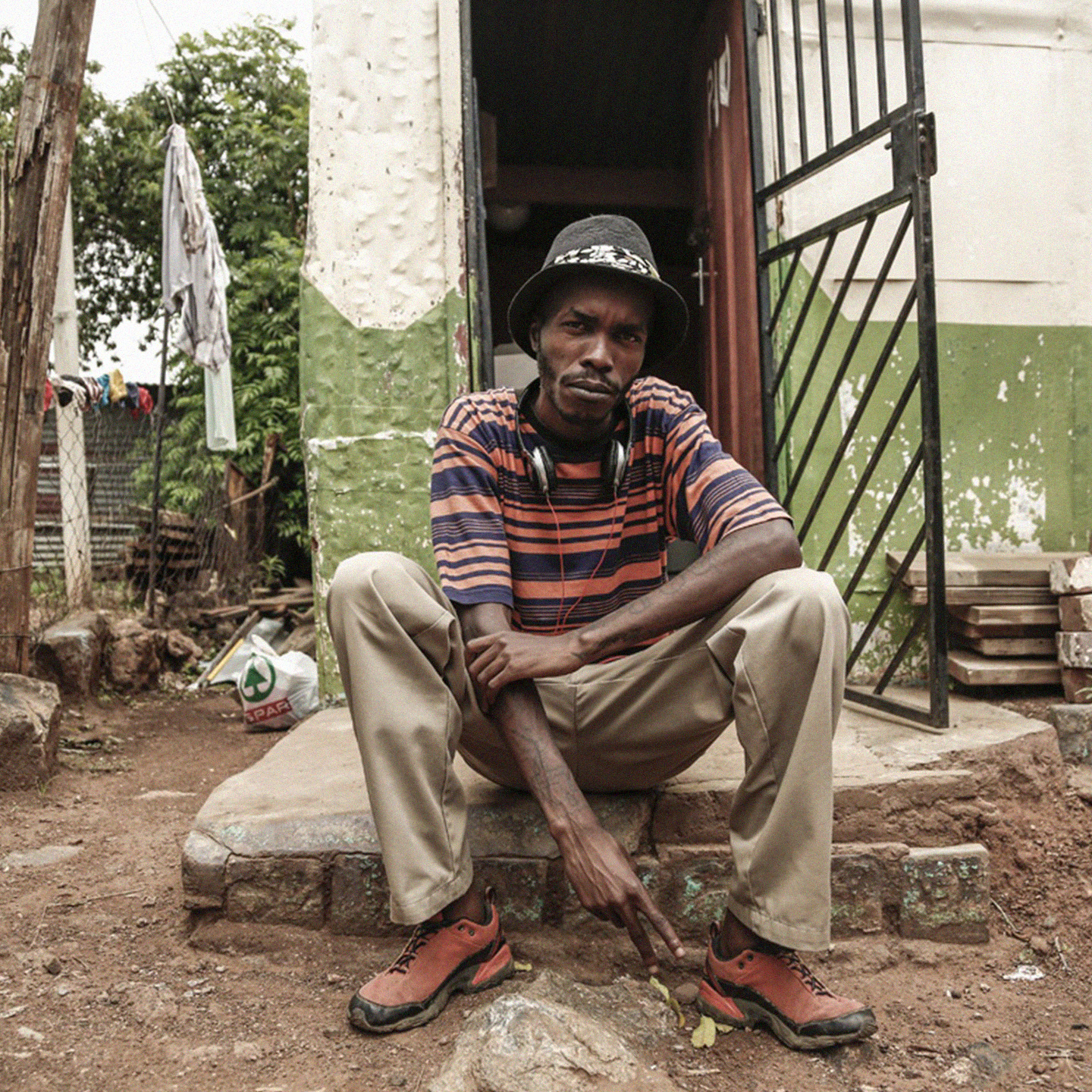
-
DJ Spoko
BANDCAMP · SPOTIFY · APPLE MUSIC
It’s been two years since DJ Spoko died too young aged 35 from chronic illness. The producer, real name Marvin Ramalepe, was best known for inventing the genre Barcadi House, his work on the iconic song “Township Funk” with DJ Mujava, and collaborations with artists like Spoek Mathambo and Nozinja. “Township Funk,” which is one of those songs that changed the trajectory of club music, is a product of Spoko’s township studio, and the many producers and engineers he mentored there. Here hundreds of tracks that have gone on to soundtrack public taxi routes and club nights were created in that studio, though Spoko will likely remain uncredited for much of his work. . Still, his influence lives on in the signature synths and sub snares that dominate Bacardi House music and the musical genres that make up its offspring.
Kampire Bahana
-
-
-
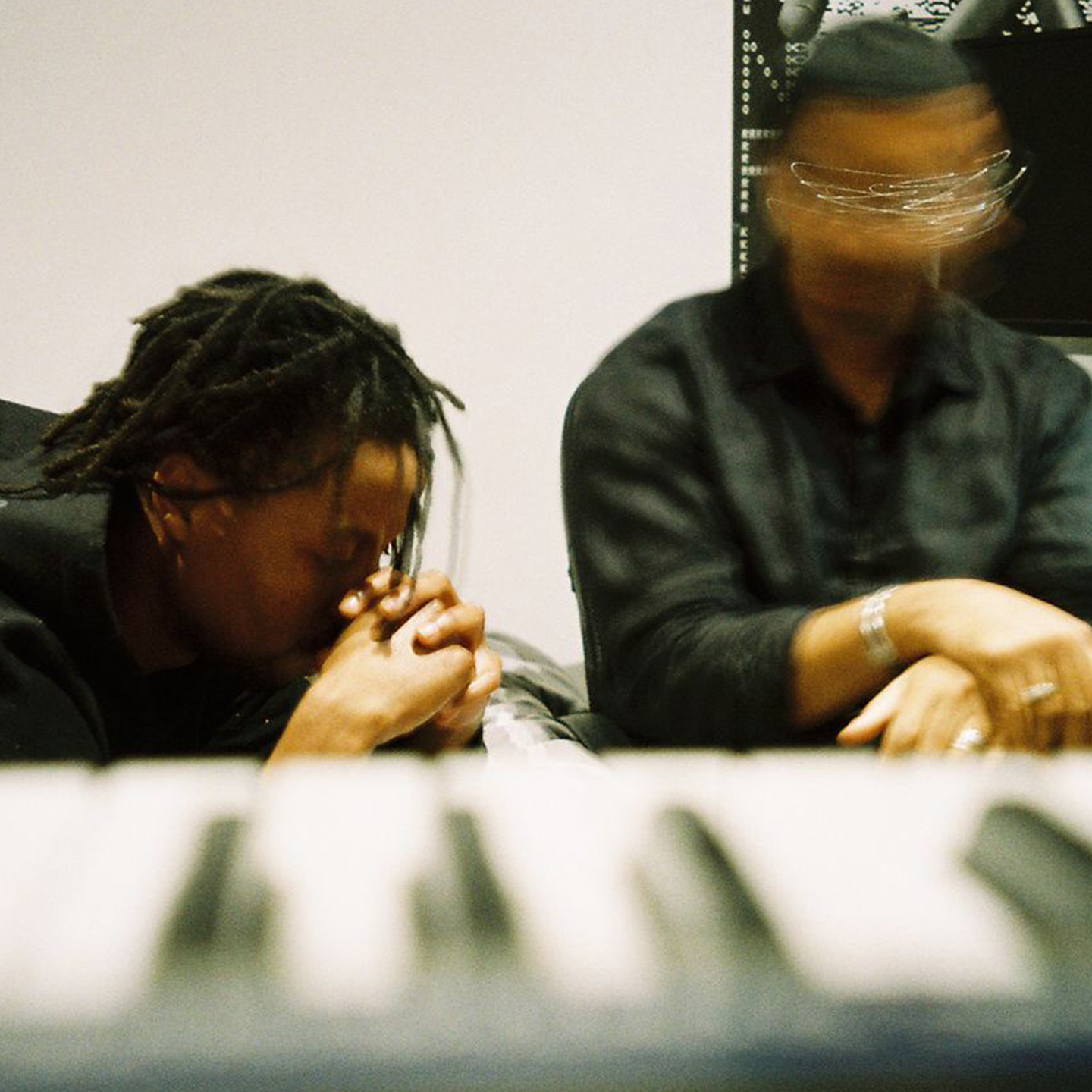
-
Space Afrika
BANDCAMP · SPOTIFY · APPLE MUSIC
Soundtracking the urban textures of Manchester, enigmatic duo Space Afrika explores themes of self-discovery, race, familiarity and loss, translating them into a glitchy ambient sound. Their monthly NTS radio show and live DJ sets create layered unraveling narratives which patiently envelop the listener. The pair’s first two releases, the much sought-after Above The Concrete/Below The Concrete (2014) cassette and Primrose Avenue (2015), are continuations of field recordings and dubbed-out techno dread from the prolific label Where To Now? Their most recent release, hybtwibt, originally recorded as an NTS radio show, serves as an abstract social commentary on the systematic oppression and destruction of Black people. Heart-wrenching dialogues and spoken-word pieces underpinned by beautiful ambient sounds; subtle strings and gentle chords. The duo has a clear expression that goes beyond music—last year they paired their Primrose Avenue release with visuals, working with film director Tibyan Mahawah Sanoh. Everything these two work on is no flash in the pan. Their projects are considered, deep, visually well-executed and like nothing you’ve heard before.
Theo Fabunmi-Stone
-
-
-
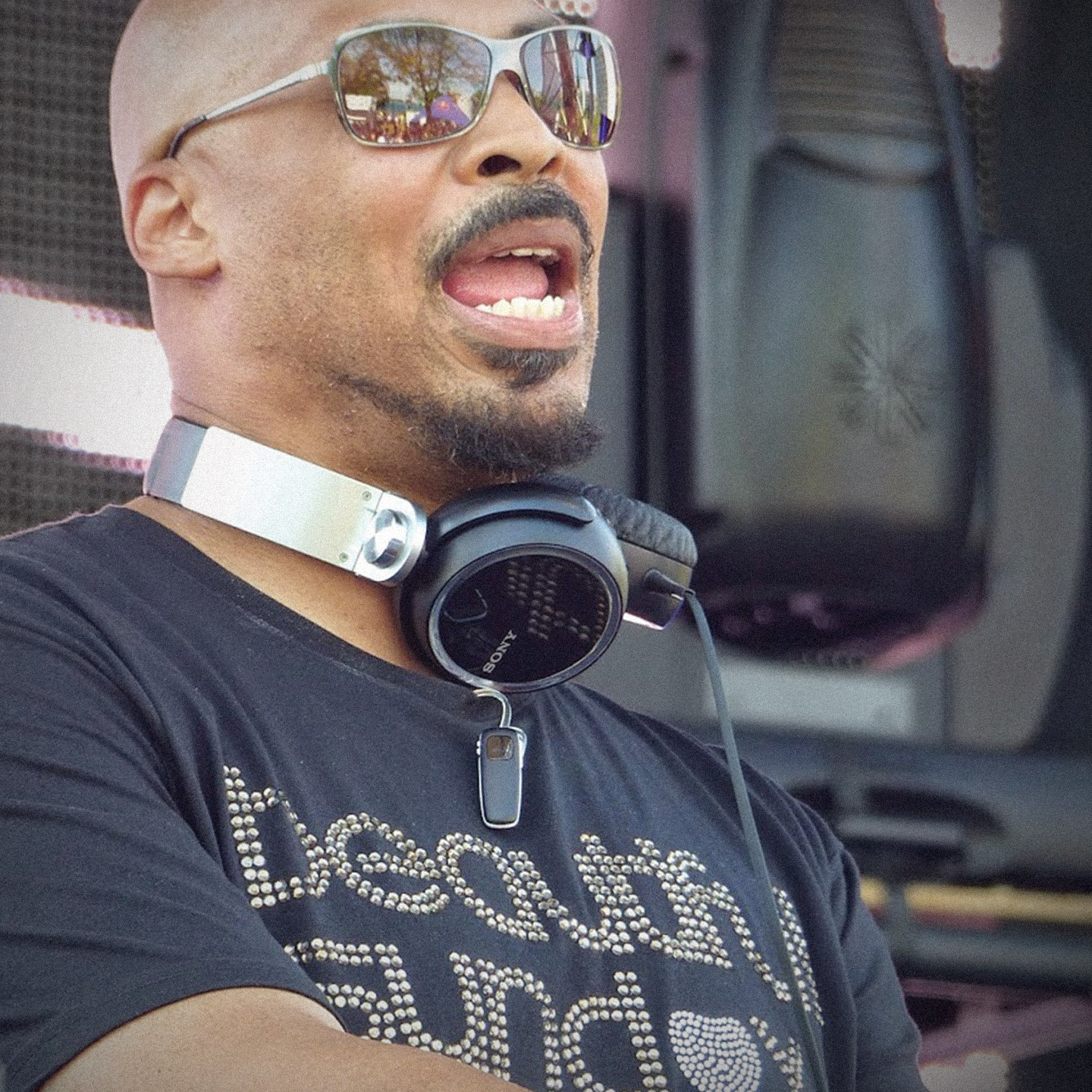
-
Rick Wilhite
BANDCAMP · SPOTIFY · APPLE MUSIC
Detroit is brimming with talented DJs who grew up together as friends and rivals. The burgeoning scene of the ’80s was a hotbed of Black youth wanting to make their mark. Rick Wilhite is a prime example of the spirit of that generation. Along with other members from supergroup 3 Chairs, Wilhite’s name has become synonymous with the deep, gritty house sound of their native city. While working at Buy-Rite Records & Tapes, which served as the epicenter for Detroit’s DJ culture at the time, he formed NASA (alongside Scan 7’s Lou Robinson and DJ Stingray), solidifying one of his earliest production credits with 12″ Time To Party. A close relationship with long-time friend Moodymann has continued as part of the KDJ/Mahogani Music family. Eventually, he made his mark as a mentor in the scene while operating his own record store, Vibes New And Rare Music, which became a modern version of his former employer. The shop would become a place where up and coming jockeys (such as Kyle Hall and Whodat) could experience the physical in a rapidly digital world.
Tajh Morris
-
-
-
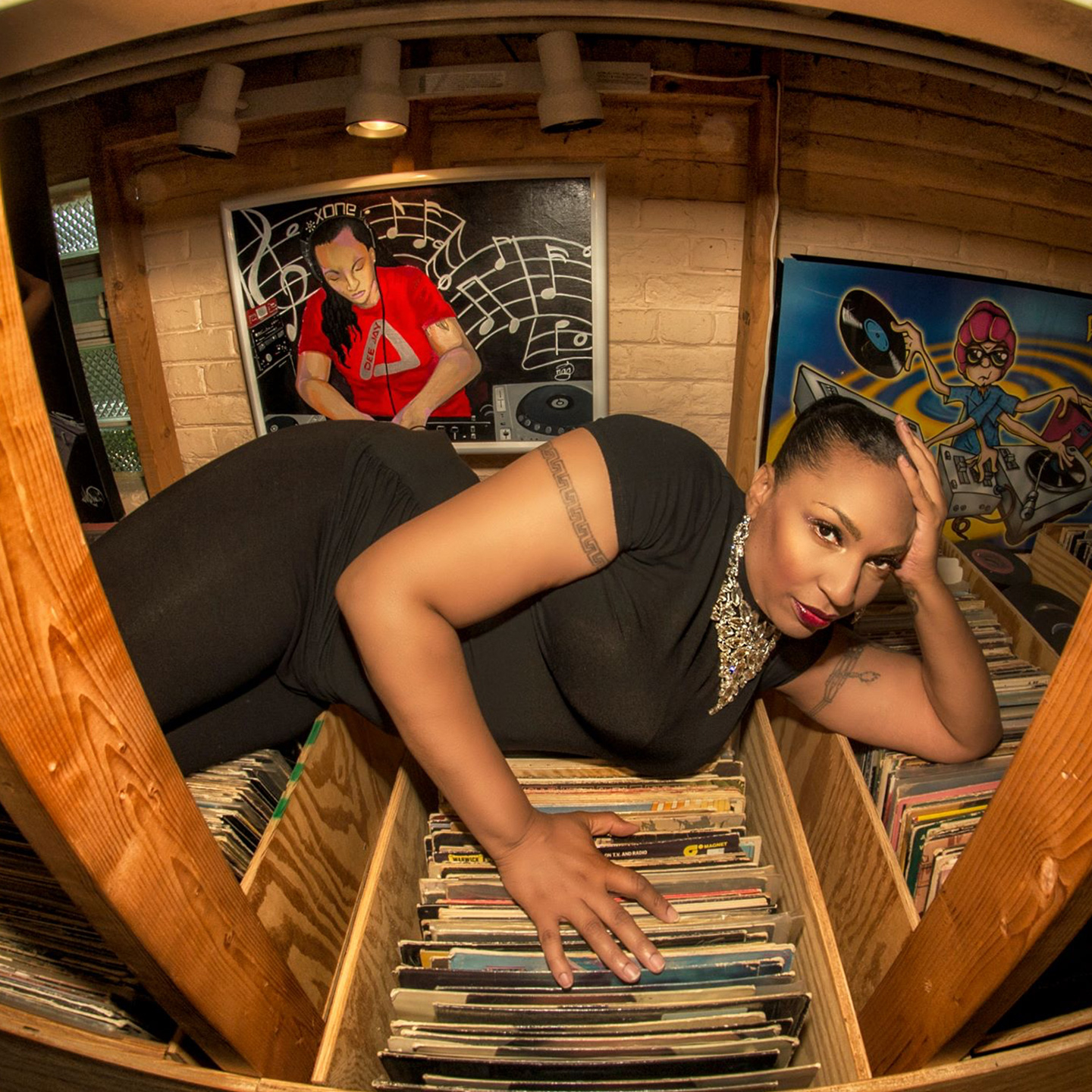
-
Deejay Alicia
SPOTIFY · HOMEPAGE · APPLE MUSIC
Chicago, the birthplace of house, has seen many musical innovations over the past 40 years with variants such as acid, footwork and drill gaining popularity in recent decades. South Side native Dee Jay Alicia, however, likes to keep it old school, drawing from her roots in Stepping and R&B to create deep, soulful mixes. Since 1996, DJA has blessed the Midwest with her musical selections, starting off as resident at Mr. G’s Supperclub, a gathering spot for the city’s steppers. Under mentorship from DJs Mike Dunn and Terry Hunter, she’s started to branch out into production work as well. In 2016 she made her premiere at Chosen Few, one of the country’s longest running house music festivals, and currently hosts a weekly show on Twitch called Studio Session. In a recent interview for the Daisychain mix series, she offered the following advice for women and non-binary DJs: persevere.
Crystal Mioner
-
-
-
-
-
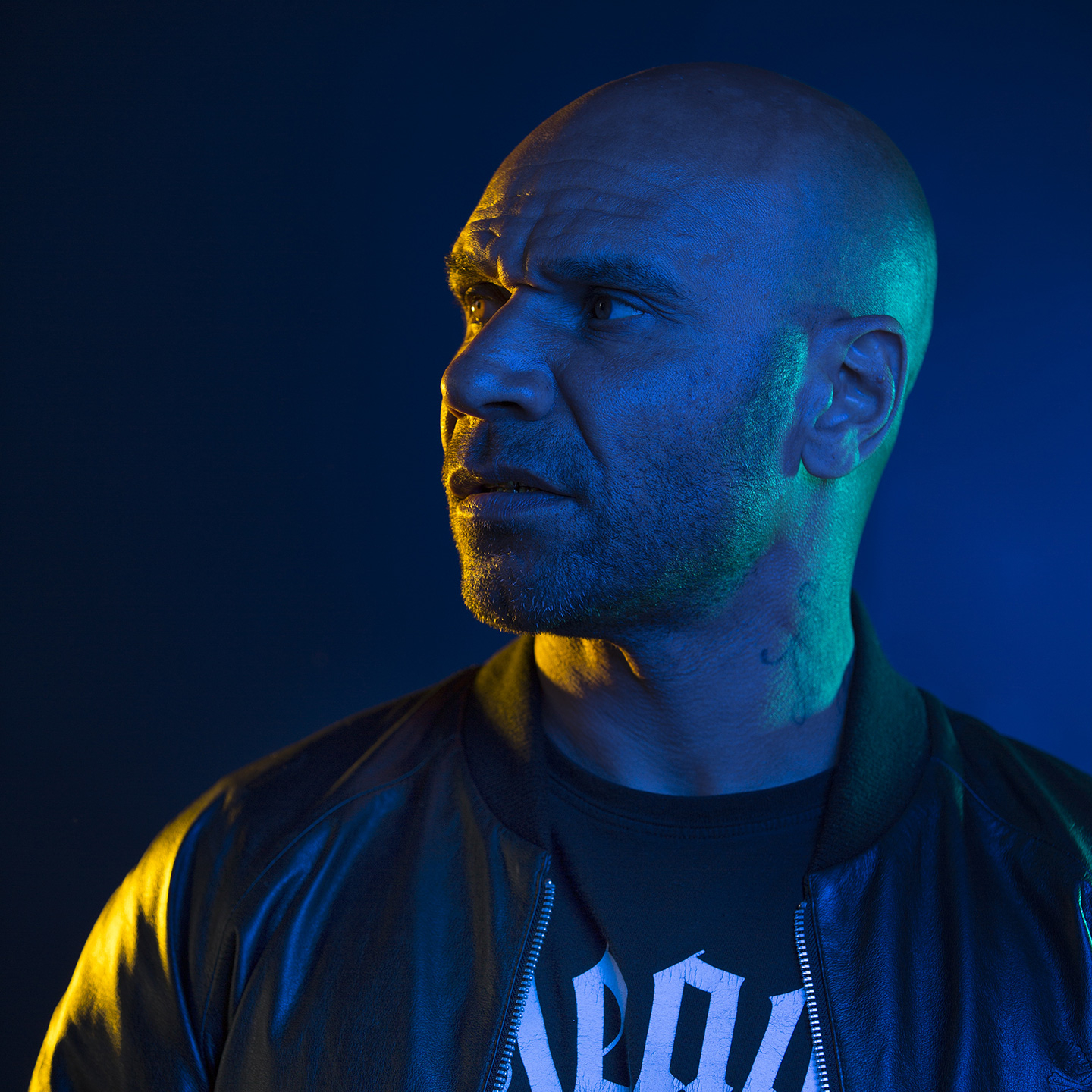
-
Goldie
BANDCAMP · SPOTIFY · APPLE MUSIC
Before Goldie was the face of drum & bass, he was Rufige Kru, a young producer developing his sound on 4Hero’s Reinforced Records, one of the pioneering drum & bass and hardcore labels of the early ’90s. His 1995 debut album as Goldie was presciently titled Timeless, and received critical acclaim upon its release. Today, with its sophisticated jazz influences, dubby baselines and nods to soulful R&B, the record remains a historic blueprint for phenomenal drum & bass. As a keen observer of the UK’s quick-paced musical developments at the time, Goldie predicted his debut album would be groundbreaking, just as he sensed his imprint, Metalheadz, was also bound for greatness. In 1994, he founded and ran the seminal label alongside his two friends, DJ duo Storm and Kemistry (before the latter’s fateful passing in 1999). For years, it was home to a legion of classics like Alex Reece’s “Pulp Fiction,” Dillinja’s “The Angels Fell,” and of course, his own Timeless.
Kiana Mickles
-
-
-
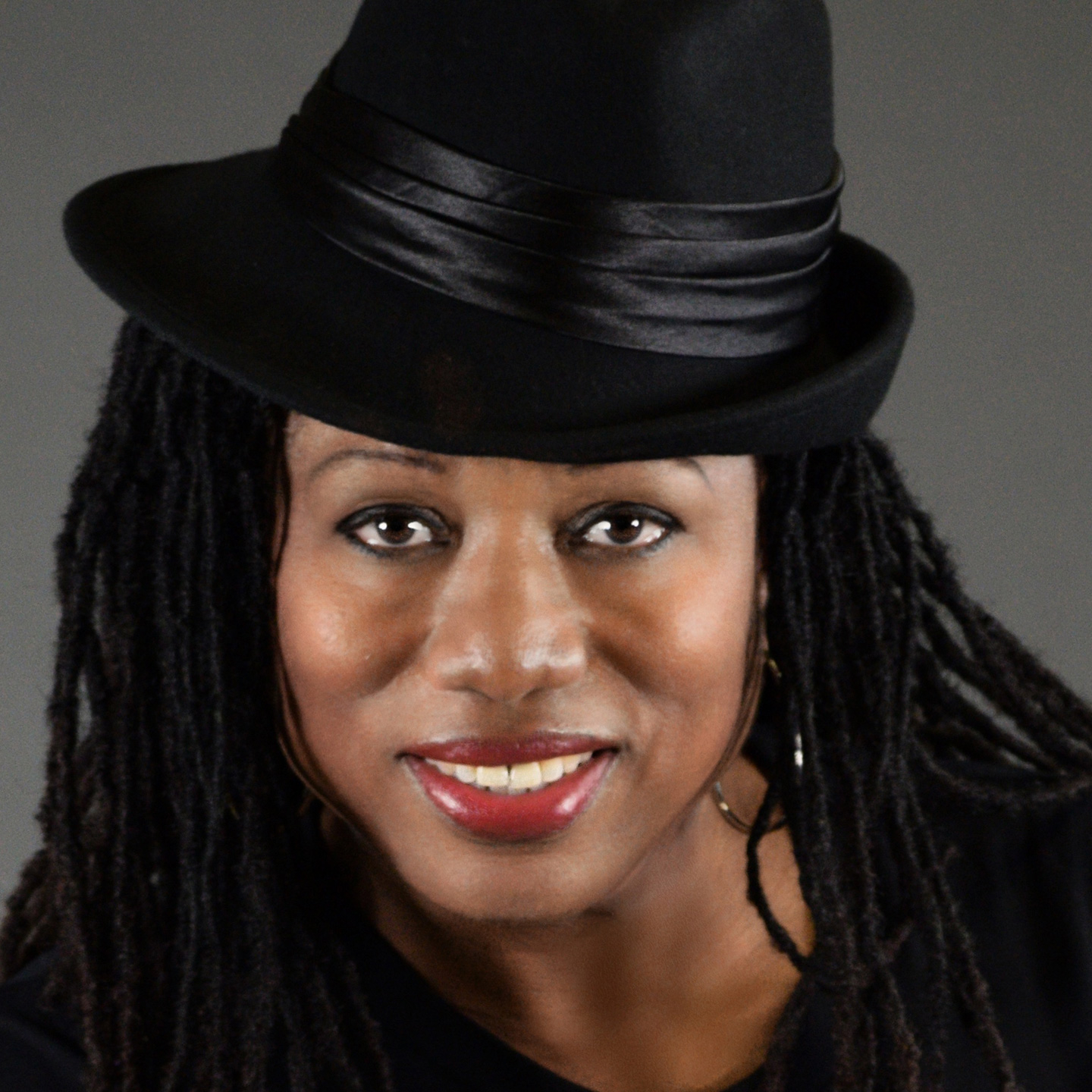
-
Hotwaxx
BANDCAMP · APPLE MUSIC
With a career spanning nearly 40 years, Stacey “Hotwaxx” Hale, AKA The Godmother Of House, has been a staple on dance floors around the world and in her hometown of Detroit since the early days of house and techno. Getting her professional start carrying crates for the late Ken Collier, who was known as Detroit’s Larry Levan, she’s played at legendary clubs such as The Warehouse and Studio 54. Her love of music spills over into every facet of her life, whether it’s working as the music director for Jessica Care Moore’s Black Women Rock! or teaching kids how to DJ with Spin Inc. Hotwaxx is a nucleus, a person who inspires others around her to strive for greatness with her energy and passion. She regularly highlights up-and-coming DJs and performers and hosts Sheometry, a showcase for female musicians, alongside DJ Minx. In lieu of live gigs, to channel her sonic message, she currently has online residencies with technoclub and deepspaceradio.
Crystal Mioner
-
-
-
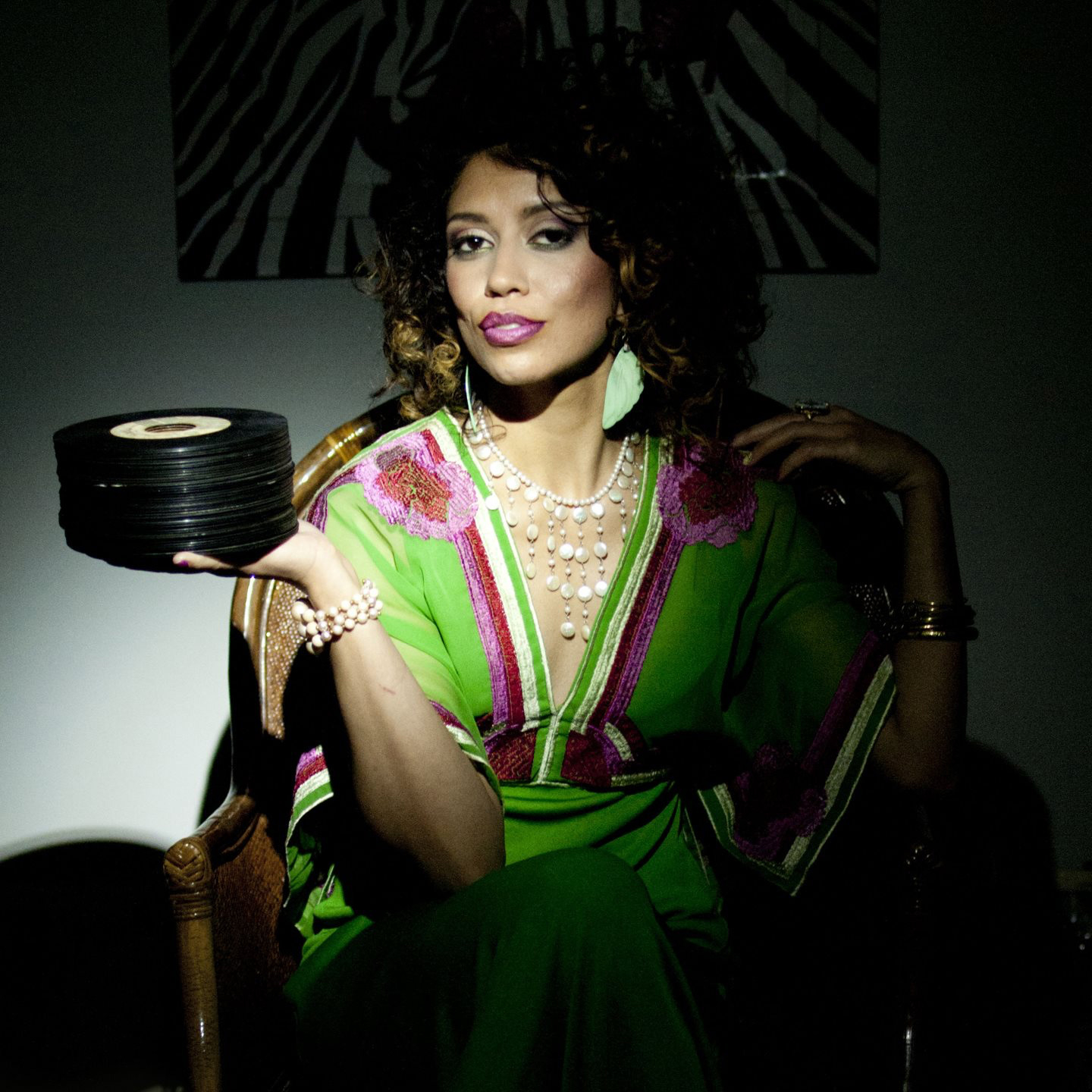
-
Natasha Diggs
HOMEPAGE · APPLE MUSIC
Natasha Diggs is a gem hiding in plain sight. Queen of the 45s, the DJ and promoter began spinning at the age of 17. Her record collection, which lines the walls of her Bed-Stuy apartment, is a treasure trove of soul, funk, disco and beyond, housing the lesser-known and underplayed works of the ’70s and ’80s. Her sets, steeped in sounds of the old, offer that rare quality of being both familiar and strangely new. Diggs is a resident DJ at Soul In The Horn, a beloved New York party series, and esteemed selector at Mobile Mondays, a vinyl-only night in the East Village’s The Bowery Electric. Whether she’s beat juggling, chopping up the decks or just vibing with smooth dance moves, it’s a journey. Once you’ve listened to a Diggs set, you’ll be wondering, like the rest of us: “How do I not know this person already?”
Riri Hylton
-
-
-

-
Gafacci
BANDCAMP · SPOTIFY · APPLE MUSIC
The son of Sega Gafatchi, a former band member of Juju music legend Chief Commander Ebenezer Obey, Michael “Gafacci” Gafatchi stands as the only Ghana-based producer to break internationally with the keenness and consistency of his trailblazing EDM peers. Meticulous, proud and full of ambition, Gafacci has won favour with every major dance music news desk with West African-inspired sounds driven by the popular Asokpor music that took over the country in the ’90s and early 2000s. Establishing his own Clam Clam label, and jetting off to festivals such as Fusion, CTM, Oslo World, Nyege Nyege and Chalewote to name but a few, Gafacci has carved out his own path, working with artists such as Sarkodie, Samini, Bryte, Mina, Famous Eno, Fever Ray and many more. This year he finds himself among trailblazers such as &ME and Burna Boy with his Branko-assisted track “Azaa” added to the December 2020 update of Grand Theft Auto V.
Shiba Melissa Mazaza
-
-
-
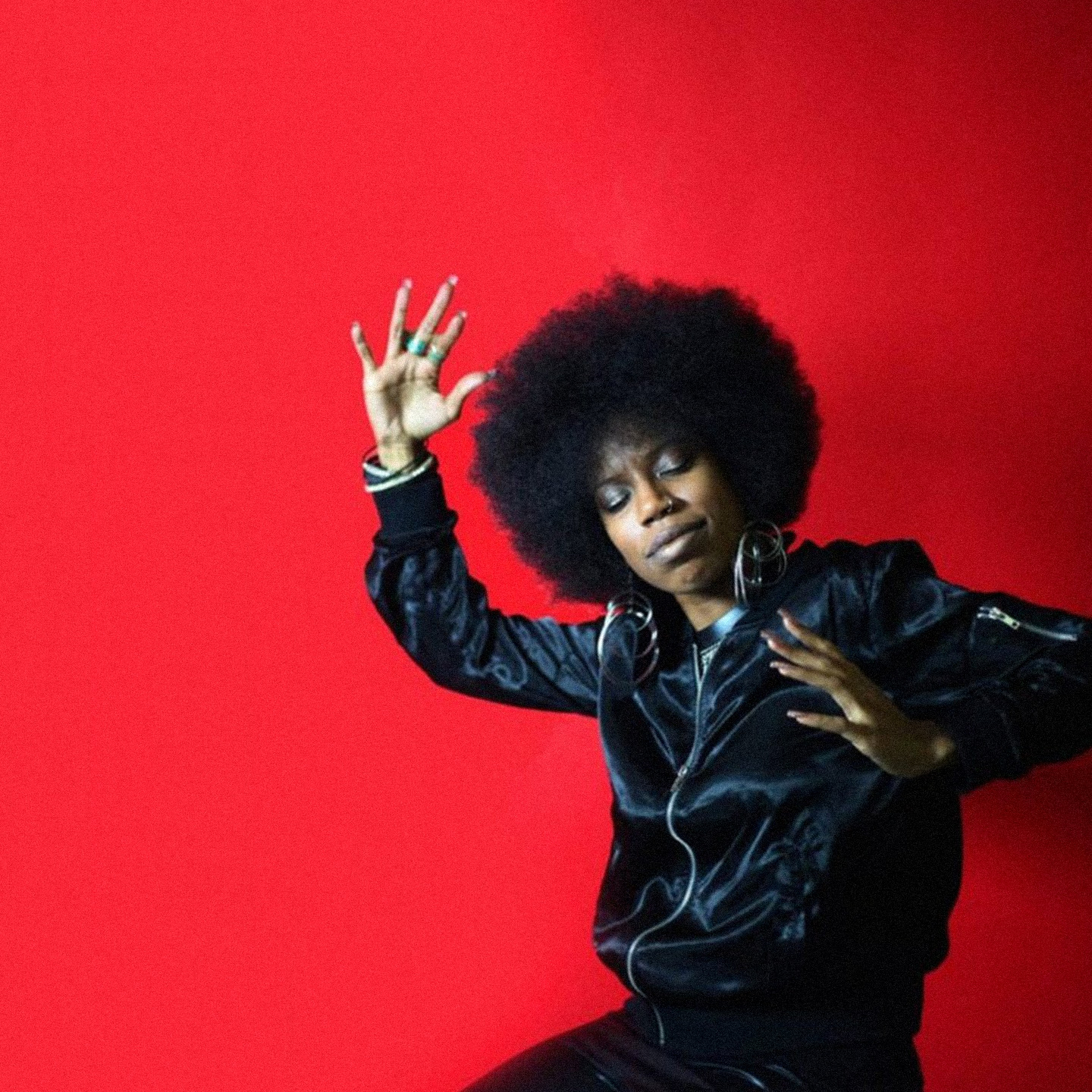
-
Georgia Anne Muldrow
BANDCAMP · SPOTIFY · APPLE MUSIC
Listening to Georgia Anne Muldrow’s music often feels like moving backwards and forwards through time simultaneously. Her music is a fountain of Black expression, dipping into ancient philosophy and the cosmic well of artists like Sun Ra on one side, while breathing futurism into funk, hip-hop, jazz and soul at the same time. The Los Angeles-born singer, songwriter and multi-instrumentalist producer has long since cemented her place as one of the most important and daring visionaries of her generation. Muldrow’s sound is forever progressive, Black liberative and sometimes even, prophetic. Woke before woke was woke.
There’s magic to be discovered in all 18 of her LPs: her Stones Throw debut, Olesi: Fragments Of An Earth, the Madlib-produced Seeds, the truckload of SOMEOTHASHIP CONNECT offerings alongside hubby Declaime, the divine trio of Jyoti records (personally blessed by Alice Coltrane herself) and her Brainfeeder debut, Overload. Perhaps even deeper is the list of those influenced by her music, whether consciously or not, from Fatima, Hiatus Kaiyote, Iman Omari, Thundercat and Janelle Monae to Liv.e, KeiyaA, Phony Ppl, Demae and The Internet. It goes on and on.
Errol Anderson
-
-
-
-
-
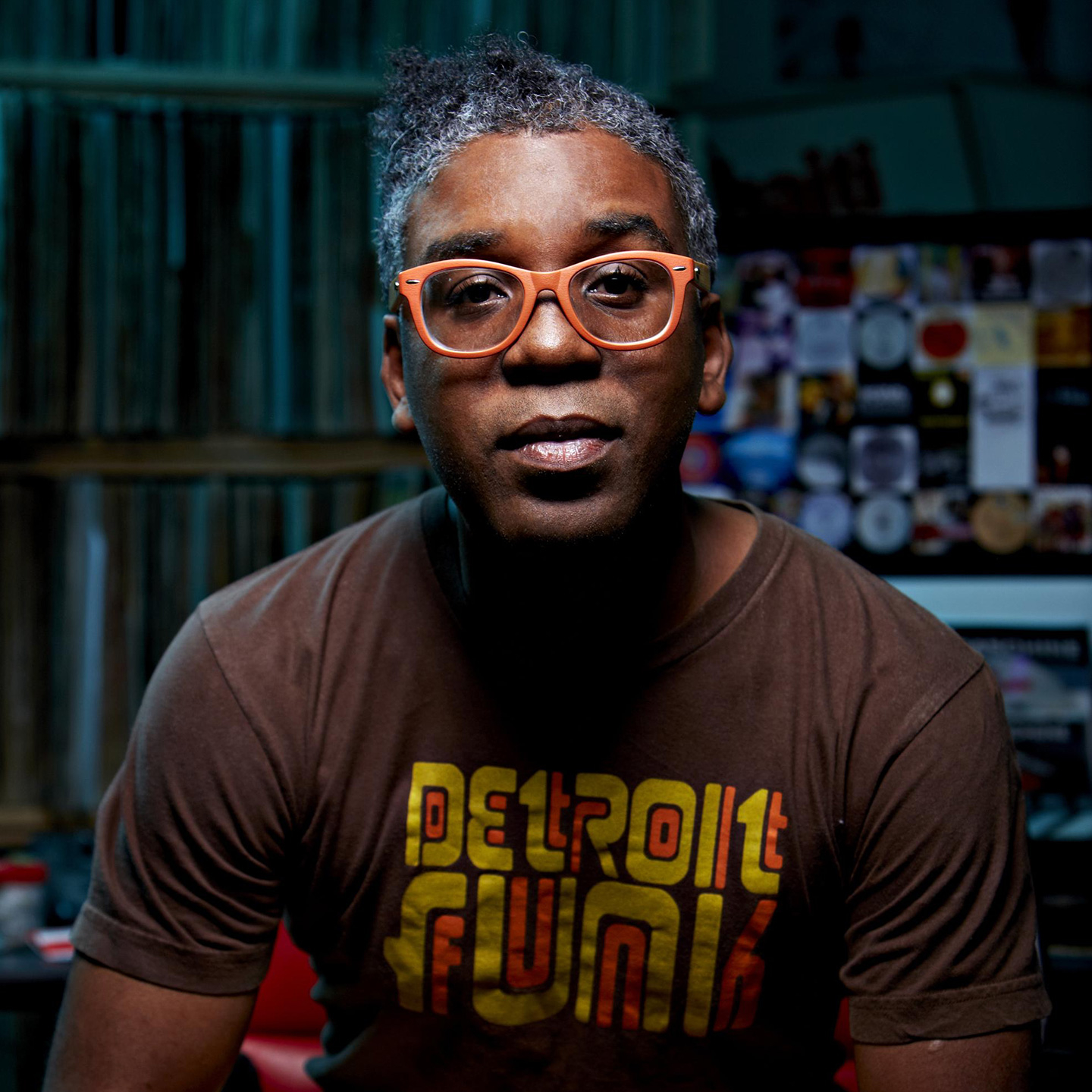
-
Kai Alce
BANDCAMP · SPOTIFY · APPLE MUSIC
Born in New York, raised in Detroit and living in Atlanta, NDATL boss Kai Alcé rather romantically gives recognition to his life story through his work. Informed by the musical legacies of each city, the label has released house cuts with derivations of deep jazz, Latin flair and D-town industrial in their catalogue spanning over two decades.Out on the jockey circuit is where Alcé began putting Atlanta on the musical map. His DEEP party at MJQ had a ten-year run, bringing streams of DJs through its doors, where alongside Alcé they gave attendees a weekly education in selection. When it came to releasing music, he did the same, so adept is his ability to cut up records and bring out their hidden meanings. This talent landed him releases on renowned labels like Mahogani Music, FXHE and Sound Signature, among which his own imprint proudly sits.
Andrew Mensah
-
-
-
-
-
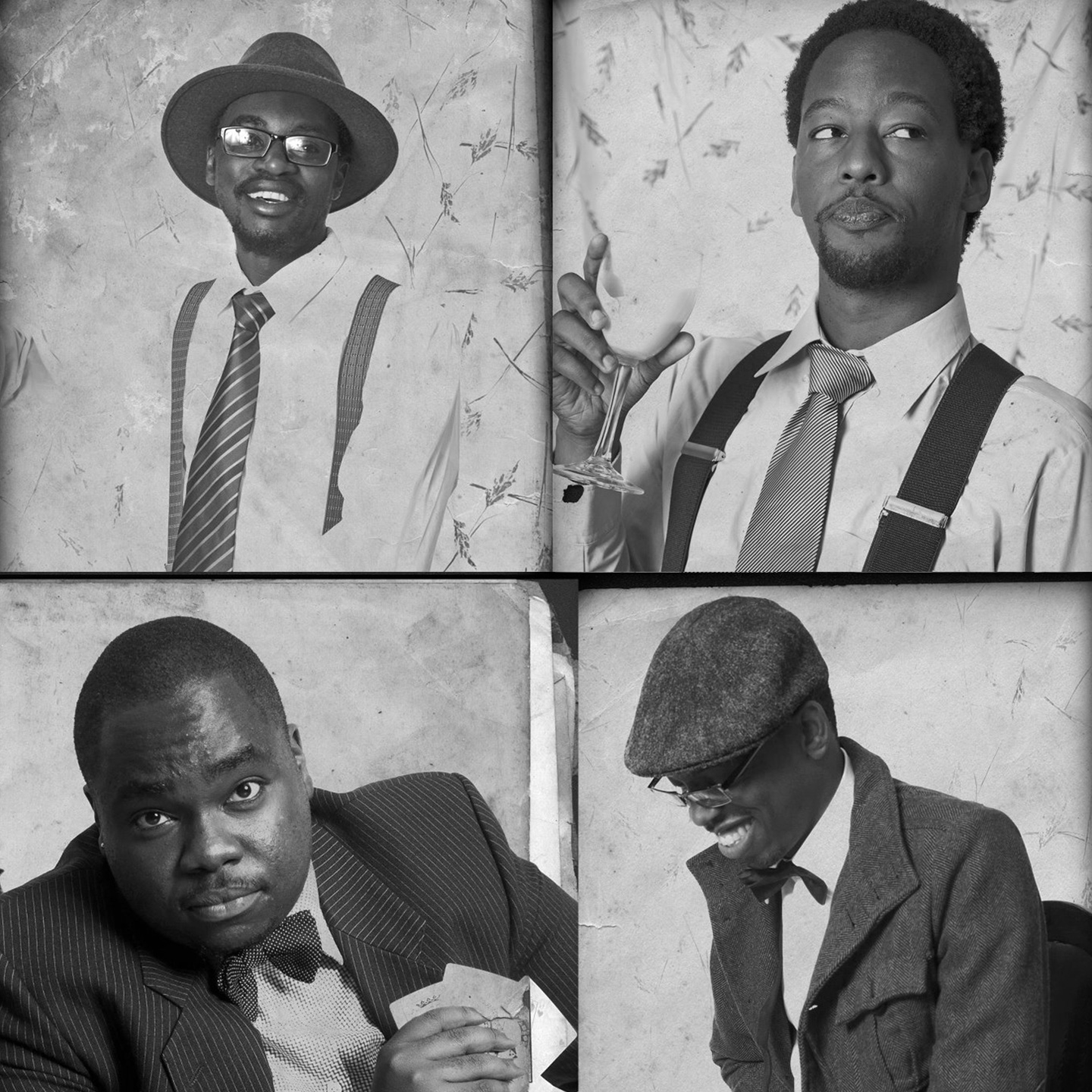
-
Just A Band
BANDCAMP · SPOTIFY · APPLE MUSIC
The blueprint for nerdy, alternative East African artists, Just A Band never asked for permission to make Kenyan pop tracks that sounded as much Daft Punk as they did Ogopa DJs. In 2010 when Kenyan radio stations rejected their single, “Ha-He”, Just A Band utilized their talents in design, animation and filmmaking, creating Kenya’s first viral music video hit. Since then the band has seemingly done it all, touring the world, collaborating with Childish Gambino and Chance The Rapper but always celebrating their hometown Nairobi even while being accused of making music not-Kenyan-enough. While the band has been on hiatus since 2016, the individual careers of members “Blinky” BIll Sellanga, Daniel Muli, Jim Chuchu and Mbithi Masya continue to evolve, producing solo albums like We Cut Keys While You Wait, award-winning films such as Kati Kati and Stories Of Our Lives and collaborating with other African acts like Sampa The Great and Elida Almeida.
Kampire Bahana
-
-
-
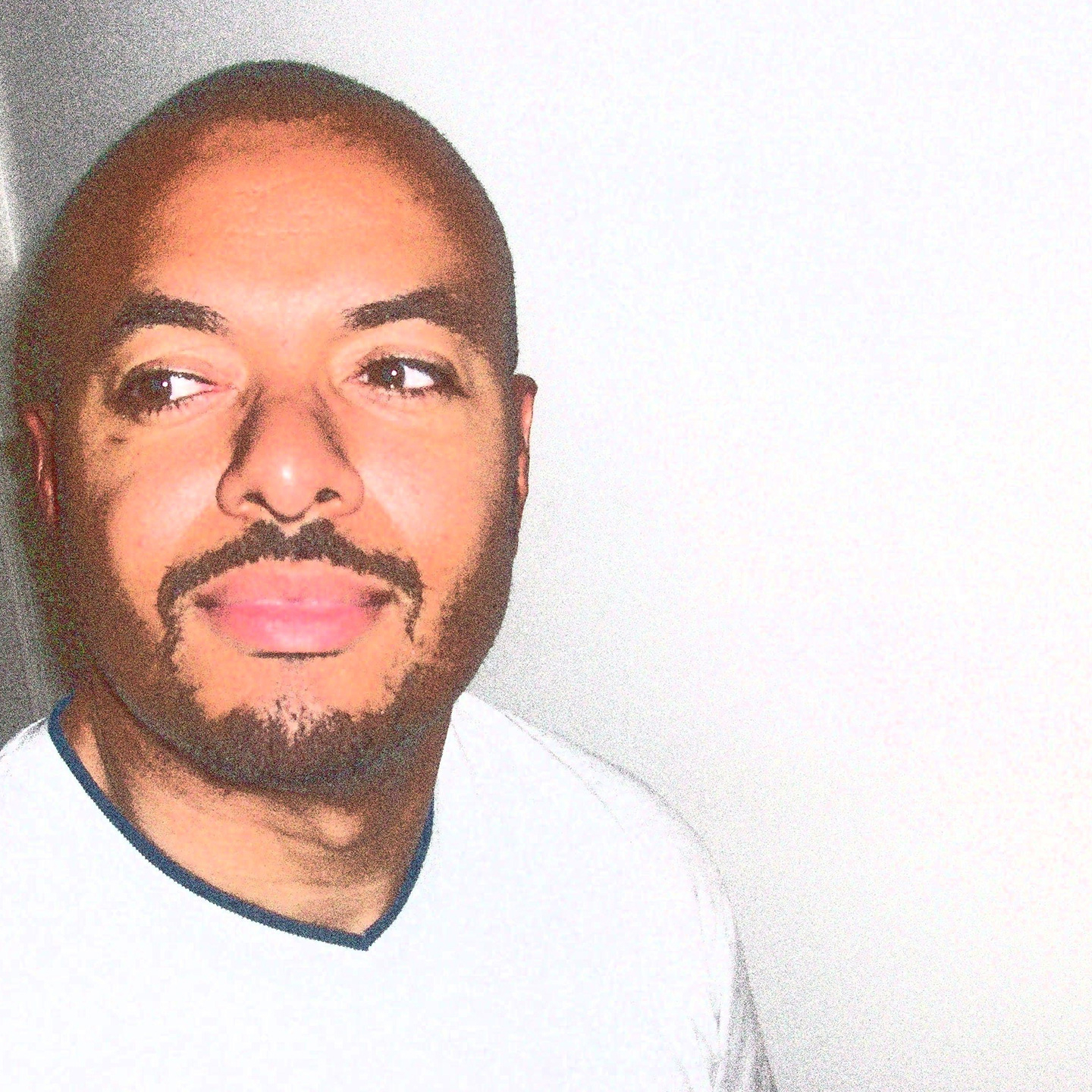
-
Nubian Mindz
BANDCAMP · SPOTIFY · APPLE MUSIC
Colin Lindo epitomizes what it is to be free from the constraints of conformity. The veteran producer continues the legacy of the mighty Reinforced originators, Dego and Mark, while embodying his own unique take on electronic music. His ability to traverse a range of styles—some easily classified, others not so much—is inherent across his back catalogue, dating back to 1996. At the core of Nubian Mindz’s output is the desire to experiment, playfully, while also paying homage to his Black roots. Lindo’s approach is a liberated personification of his hometown, London; diverse, rich in its cultural reference points and universal in its appeal. Twenty-five years deep and still driving forwards, Nubian Mindz is a core proponent of London’s multicultural heritage, adding Lindo’s distinct take on electronic music to the city’s storied lineage of great Black artists.
Marcus Barnes
-
-
-
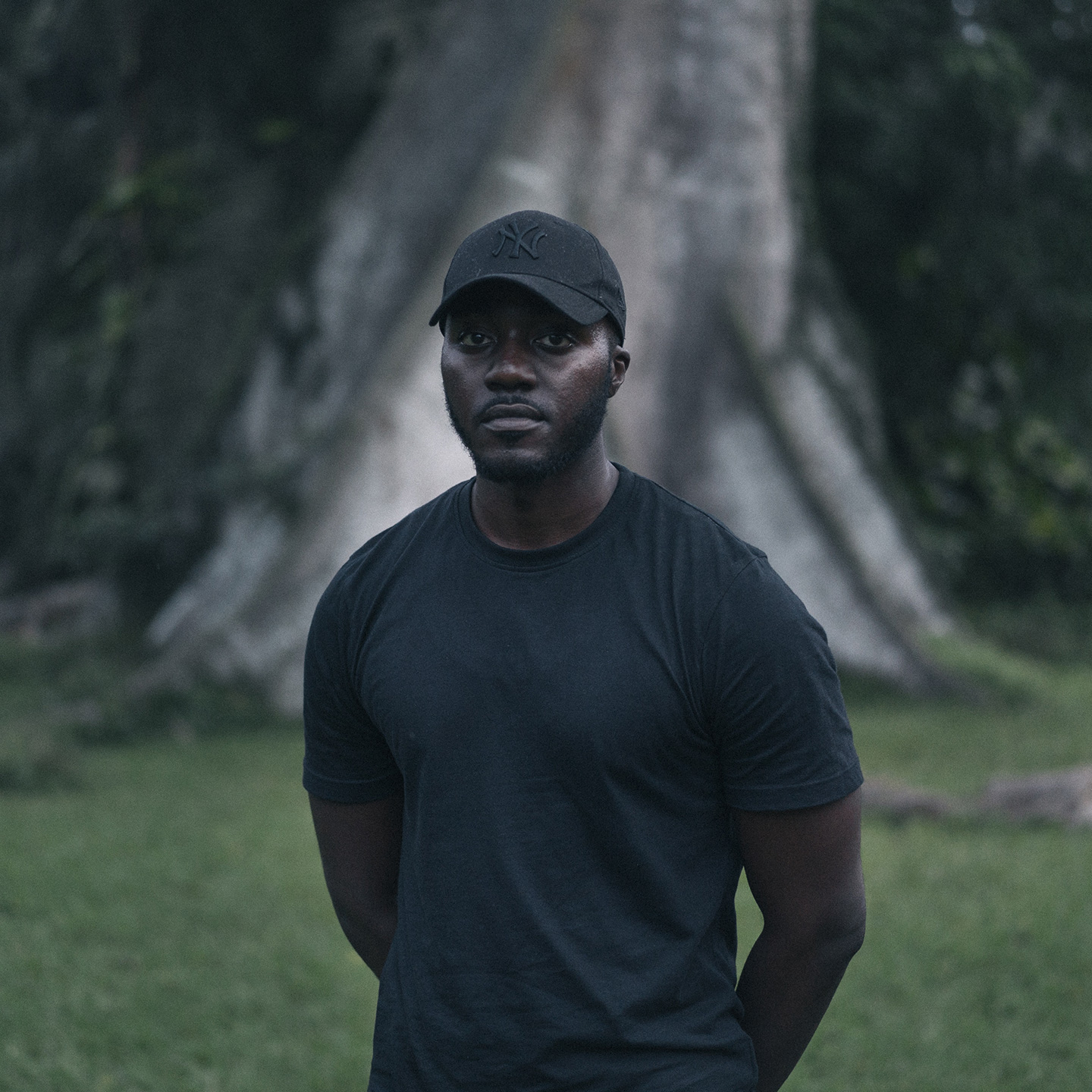
-
Hagan
BANDCAMP · SPOTIFY · APPLE MUSIC
Hagan’s percussion-heavy club concoctions call for a dance that materialises as much mentally as it does physically, rich with dark shadowy textures. They’re the worthy fruits of time spent creating his own UK funky-inclined Afrobass, exploring with precision the sounds and influences of his Ghanian heritage and honing his production skills over the years.
From the deeper, more tribal sounds of his earliest releases it seems Hagan has wandered the aisles of UK and African club, browsing through gqom, Afrobeat and deep house. The results of his learnings so far are evident in releases on Jamz Supernova’s Future Bounce, Beat Werk and Python Syndicate. This year, he made a new excursion with a feature on Sango’s Baile Funk-nodding Da Rochina 4 record. His latest Waves EP on Gobstobber Records is perhaps his most accomplished to date, taking equally from inner wells of calm and energy. Comprising three percussion-centred tracks that make mathematical equations with spiritual results, it connects ancestral blackness to the club.Andrew Mensah
-
-
-
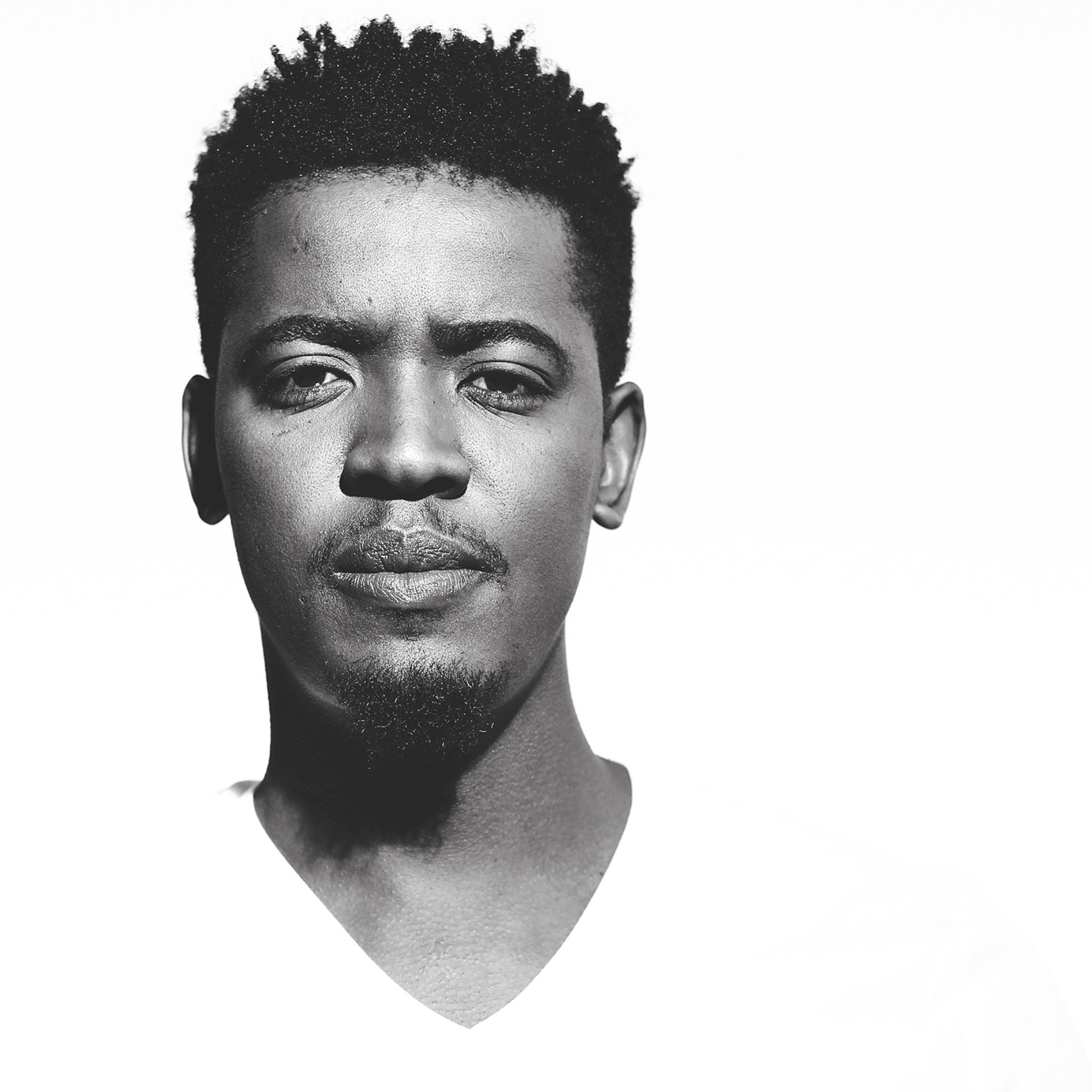
-
Sun-El Musician
SPOTIFY · APPLE MUSIC
Joburg-based dance music producer Sun-El Musician, originally from KwaZulu Natal, is marking his own brand of South African house. Equal parts kwaito, tribal and euphoric, his productions build beautifully, embodying joy and hope in their arrangement of mantra vocals, rolling syncopated percussion and uplifting chord successions, shaped by a progressive song structure drawing from strong trance hallmarks. His 2017 track “Akanamali,” featuring Samthing Soweto, was the catalyst, sparking his propulsion into speakers across the country and further afield. From here, he’s never looked back. Now with his own label, EL World Music, Sun’s influence on the Afrohouse world is growing by the day, but given his perfectionism and humbleness, he’s probably yet to see it.
Andrew Mensah
-
-
-
-
-
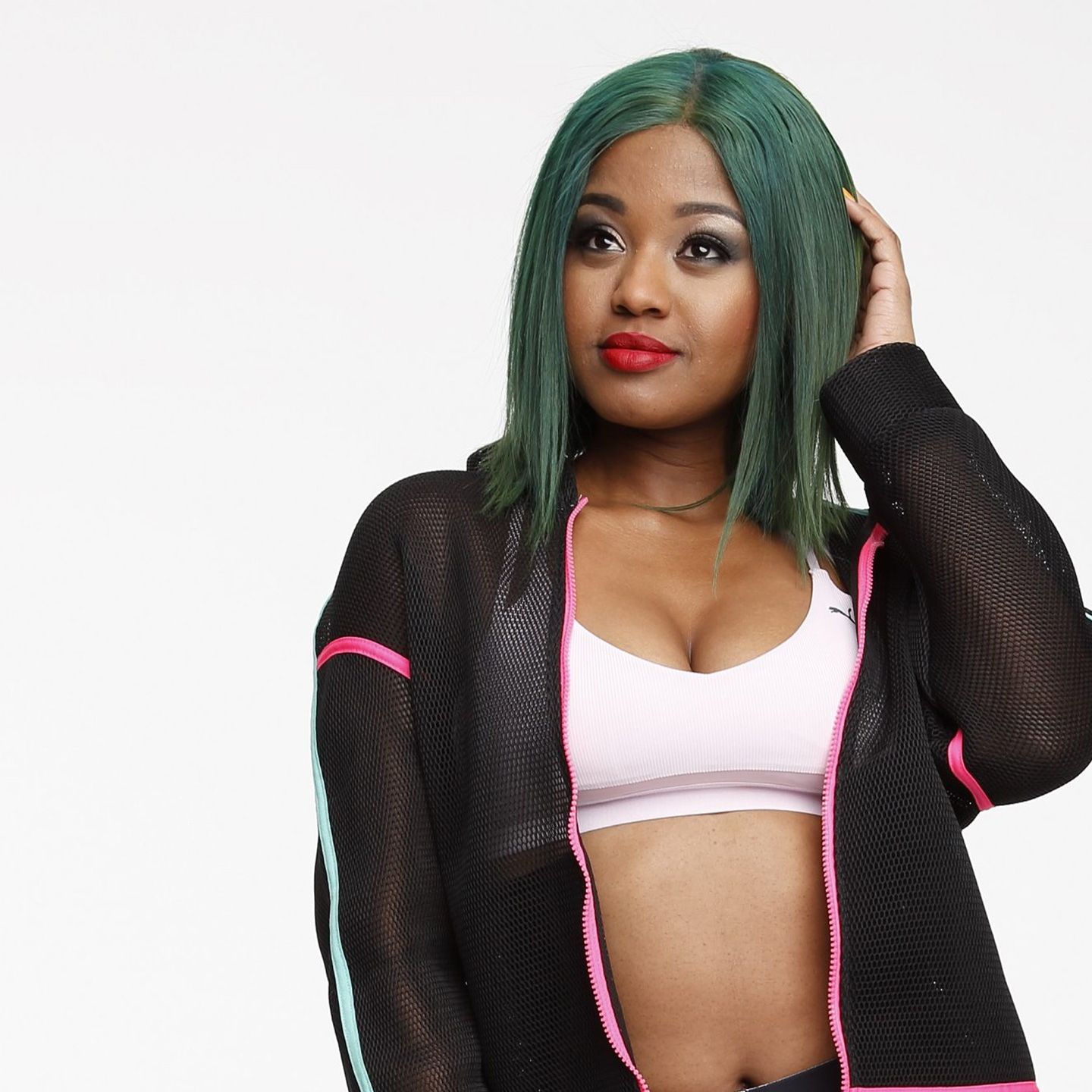
-
Babes Wodumo
SPOTIFY · APPLE MUSIC
Bongekile Simelane, better known as Babes Wodumo or “The Gqom Queen,” is a South African artist and choreographer who set the scene with her breakthrough song “Wololo” in 2016. Taking a genre considered at the time to be “too hard for women,” she brought it from Durban’s shores into South Africa’s spotlight, alongside the likes of DJ Lag and Distruction Boyz. Her debut studio album shone in late 2016, leading to collaborations with Major Lazer and a feature on the Black Panther soundtrack alongside rapper Zacari. No stranger to controversy, herself and her manager/partner in rhyme Mampintsha continue to make headlines in local tabloids for their various questionable antics. 2017 saw Wodumo nominated for the BET Award for Best International Act: Africa, and last July she came out with her second album, Idando Kazi, continuing to spearhead this infectious genre both at home and abroad.
Shiba Melissa Mazaza
-
-
-
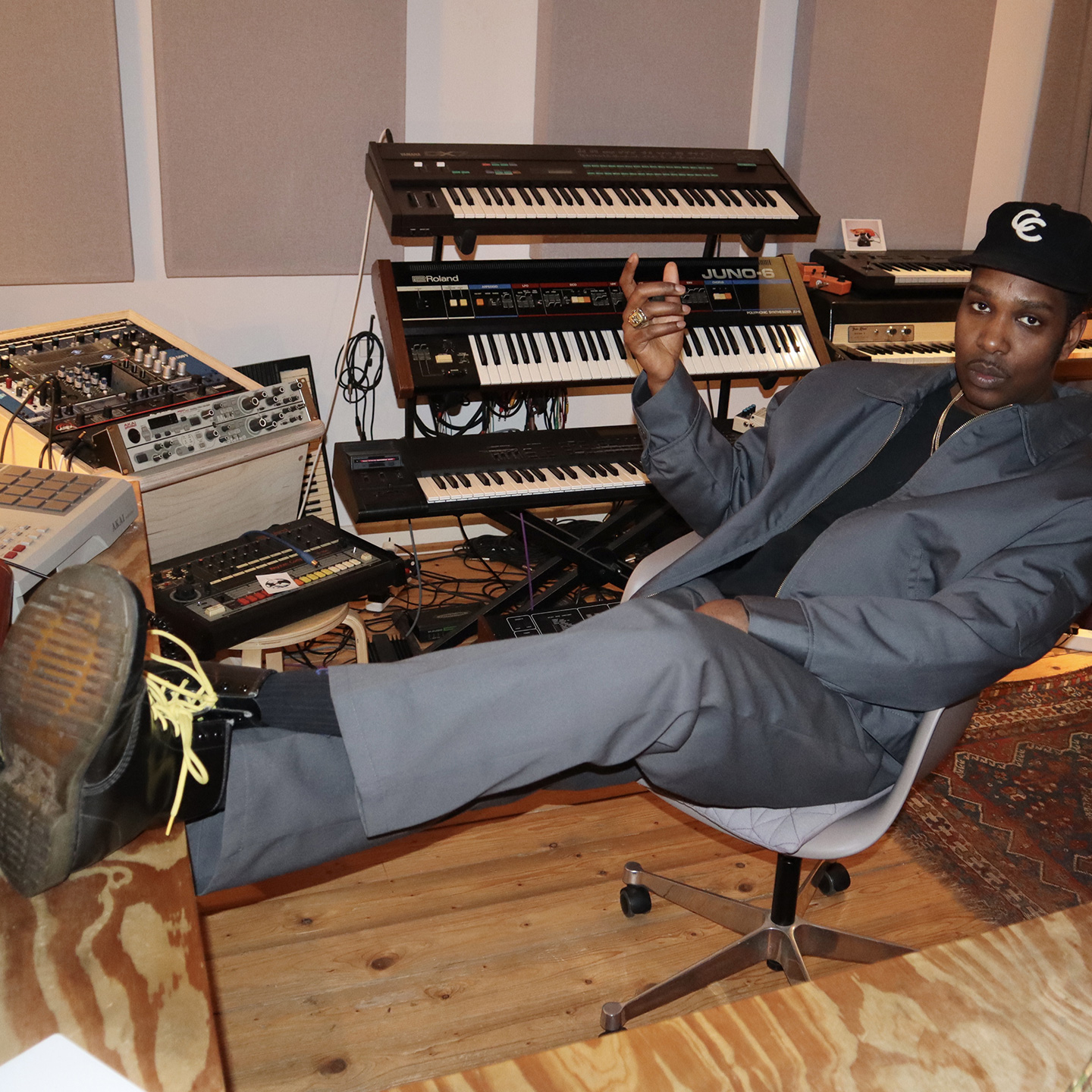
-
Steven Julien aka Funkineven
BANDCAMP · SPOTIFY · APPLE MUSIC
Legendary London DJ and producer Funkineven, real name Steven Julien, is responsible for some of the last decade’s most inspiring house albums, as well as a label and party that hosts exciting local and global talent in electronic music. His first record, Kleer featuring Fatima, was one of the early Eglo Records releases, and along with several others, they helped set the foundations for Alexander Nut’s now-famous label. Julien started Apron in 2011 with an inaugural EP sharing his new label’s name. With this release, he mapped out the blueprint for a raw, staccato, broken acid sound, which continues to be a sonic thread through his music today. Fallen, his milestone album, is his first under his birth name, a jazz-tinged tale of soothing synths, with deep groove basslines washing over polyrhythmic drums. Also released in 2018, Bloodline is a gritty love letter celebrating his musical family lineage, and adoration for iconic Japanese engineer Ikutaro Kakeshi, with every track featuring a Roland TR-808. Whether it’s his solo productions, or collaborative endeavors with Lord Tusk, Byron the Aquarius or Yassin Bey, Steven Julien has cultivated a unique brand of boogie and left-field house that’s instantly recognizable.
Theo Fabunmi-Stone
-
-
-
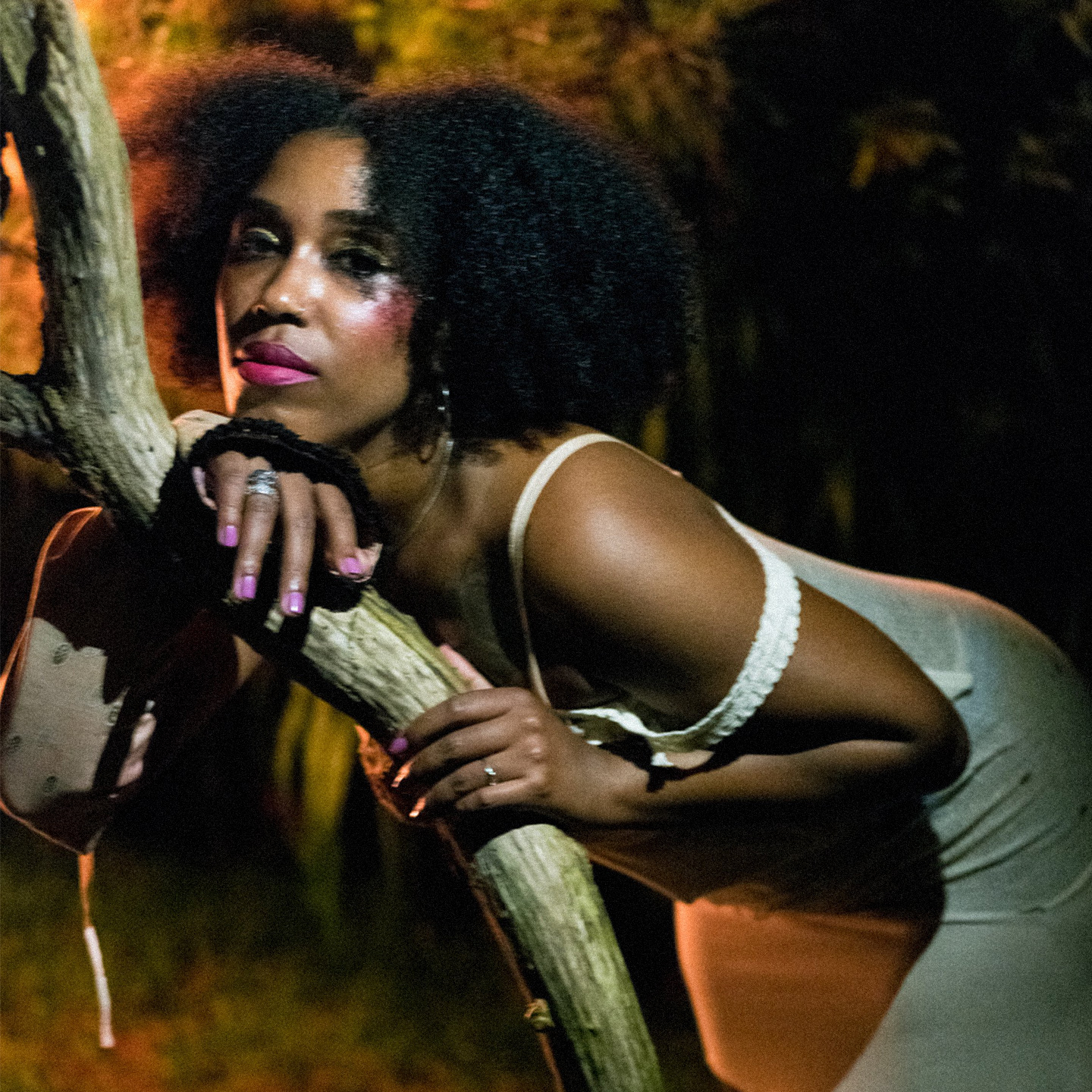
-
MHYSA
BANDCAMP · SPOTIFY · APPLE MUSIC
MHYSA is the musical persona of vocalist and producer E. Jane. They grew up singing gospel music for church choirs in the small town of Bethesda, Maryland, and gospel’s transformative spirit is constantly reimagined and wielded throughout their discography. The MHYSA alter-ego uses self-taught DIY bedroom experiments to energise, therapize and empower club settings, in the fight for black women’s autonomy and the right to control their image. Glitchy production and unfettered club rhythms obey and flinch at the command of Jane’s voice. They’ve crafted a sound like that, inspired by gospel and 90s R&B influences, the human voice is the primary instrument. It’s fitting that their latest album, 2020’s gauzy and passionate NEVAEH (heaven spelt backwards), contains sinister covers of traditional gospel songs. The spiritual essence ebbing through this music makes the self-expression and sexuality feel almost divine in nature. With queer identity playing a big part in their artistry, Jane’s utopia is one where black women and femmes see heaven when they look in the mirror and find an abundance of space for themselves in music.
Emeka Okonkwo
-
-
-

-
Rimarkable
BANDCAMP · SPOTIFY · APPLE MUSIC
Rimarkable is a hybrid of her native Detroit and her chosen home of Brooklyn, bridging old school sensibilities with a willingness to continuously expand her music taste. An alchemist behind the decks, she engages her mind, body, and soul with her audiences. Her instagram live sets read like a who’s who of music, with pop-ins from everyone from Zhane’s Renee Neufville to Marcellus Pittman. Waajeed’s Dirt Tech Reck’s inaugural signee, she released her debut single “I’m In Trouble” in 2018, a deep house gem with Rimarkable’s otherworldly vocals. In addition to vocals and arrangement on her own tracks, she’s contributed remixes to collaborator Khalil Anthony’s releases as well. For the past 5 years, she’s run Joy, a day party in Brooklyn celebrating BIPOC LGBTQIA. It is her belief that DJing is akin to activism, and she uses the healing property of music to address current events and provide space for people to critically think and feel about the times.
Crystal Mioner
-
-
-
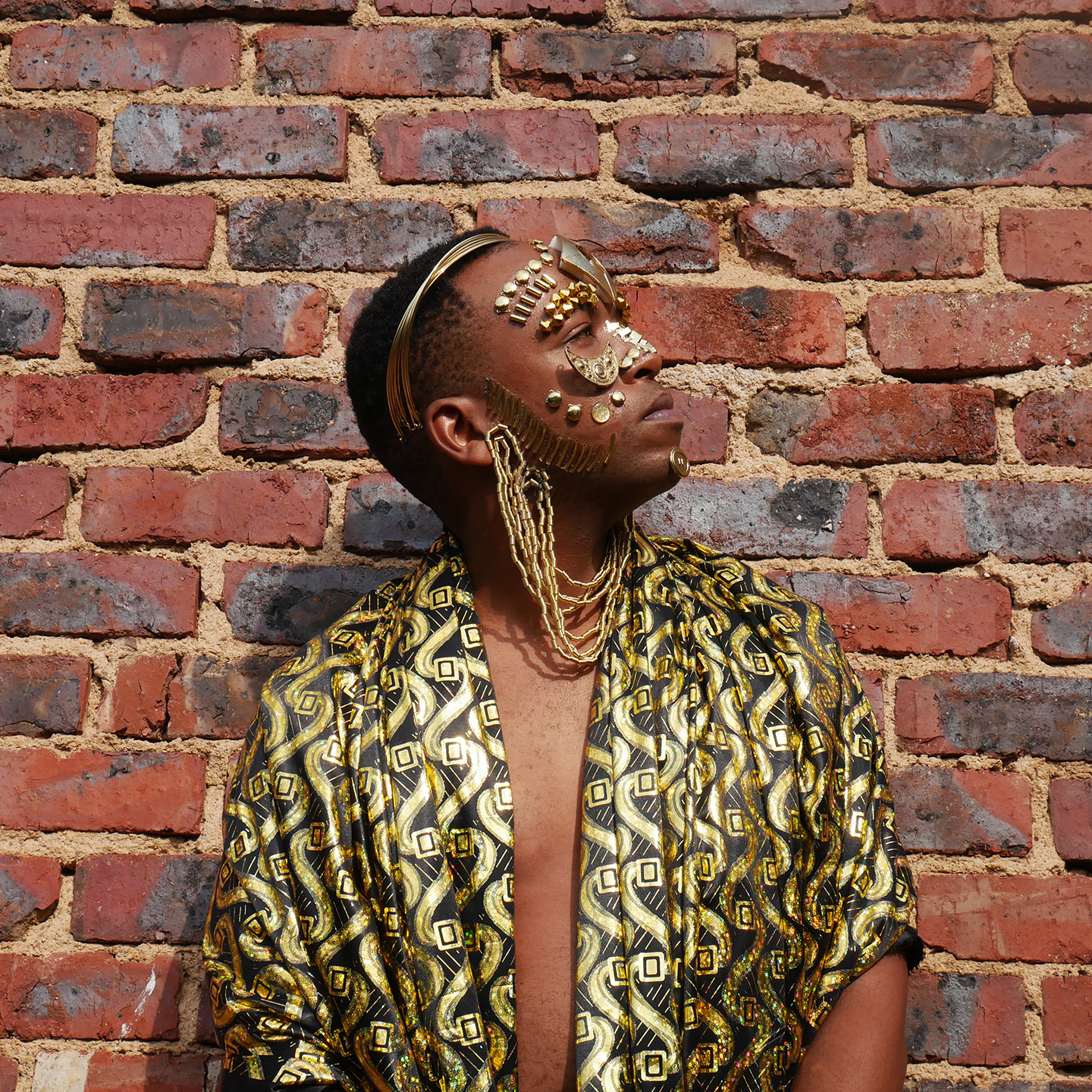
-
Spoek Mathambo
BANDCAMP · SPOTIFY · APPLE MUSIC
Since exploding on the South African music scene in the early 2000s with a series of genre-defying mixtapes and collaborations, Nthato “Spoek Mathambo” Mogkata has always reflected African music’s diversity. Championing all the various DNA strands of South African electronic music—Durban gqom, Shangaan electro, Bacardi House, Kwaito—his 20-year career reflects the changing trajectory of African artists outside of the mainstream. His first albums, the raw Mshini Wam and the explosive Father Creeper, were often considered too weird for play on South African radio, making the biggest splash outside the continent, earning Mathambo fans across the UK and Europe, leading to an international touring career. He has used his international platform to champion fellow South African artists, whether in his documentary of friend and Maskandi guitar legend Bhekisenzo “Vukazithathe” Cele, or collaborative musical projects like Fantasma with DJ Spoko, Batuk with Aero Manyelo, Nandi Ndlovu and Carla Fonseca, or on conversation-shifting compilations like “Future Sound of Mzansi”.Today numerous African artists pull from a wide range of reference, influenced by the metal, trap and techno they grew up listening to, leading them to develop audiences both abroad and at home. This is thanks in part to artists like Spoek Mathambo who took on these imagined boundaries of what African music “should” sound like, and thrived.
Kampire Bahana
-
-
-
-
-
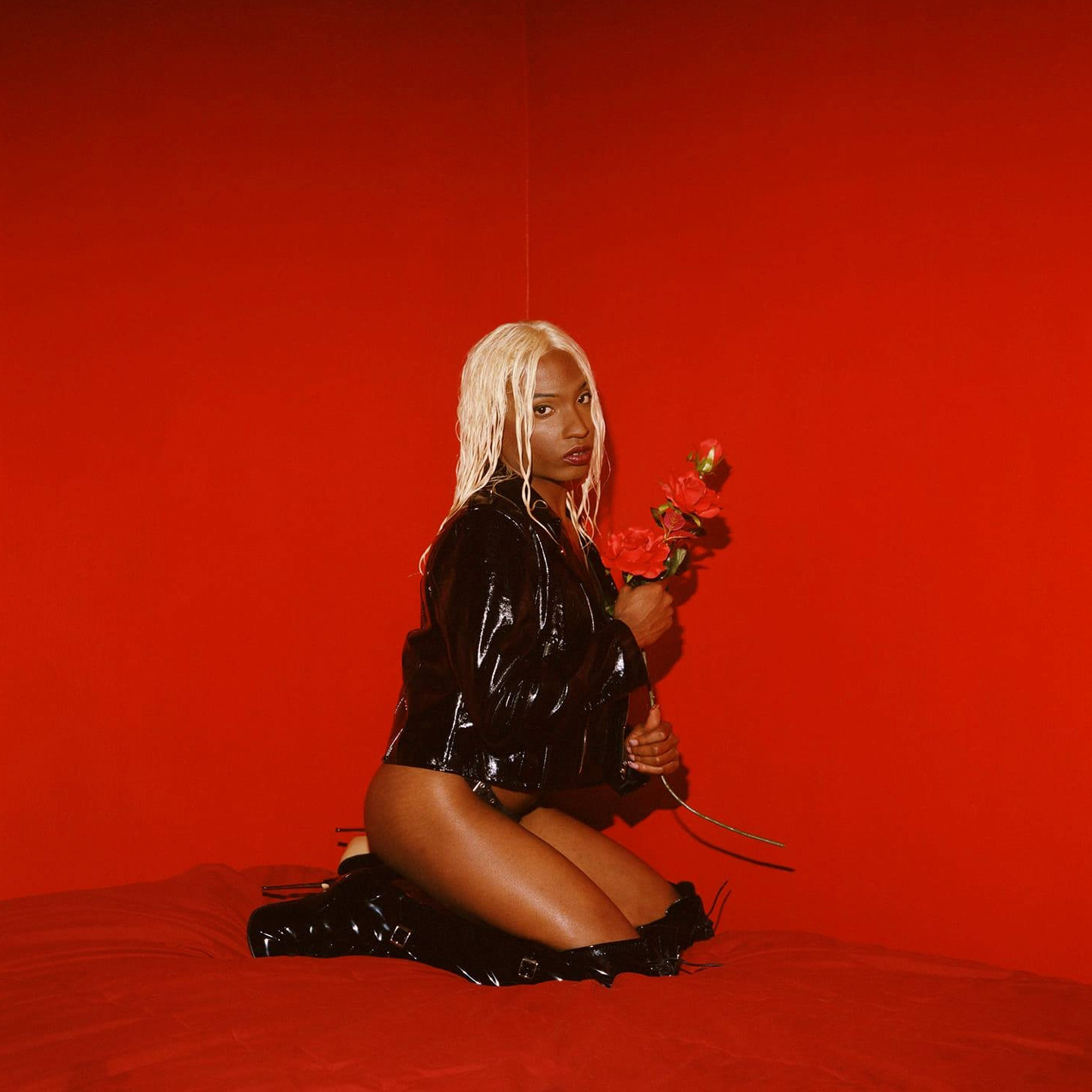
-
Quay Dash
SPOTIFY · APPLE MUSIC
Hailing from New York City, the birthplace of hip-hop, rapper Quay Dash has been emerging as a legitimate threat to the city’s throne. By meshing classic NY hip-hop influences from Terror Squad to Remy Ma with elements of house and techno in collaborations with the likes of SOPHIE, she’s shown a versatility her contemporaries can’t keep up with. “Middle fingers up to the cops, Got your man all on my cock,” spits Dash on “U Ain’t Fuckin’ With Me” from her unapologetically named Transphobic EP. Here she effortlessly toes the line between ignorant and hyper-aware, with a braggadocious and distinctly Bronx twang. As Dash told The Guardian in 2016, “I’m here to stay and slay.”
Emeka Okonkwo
-
-
-
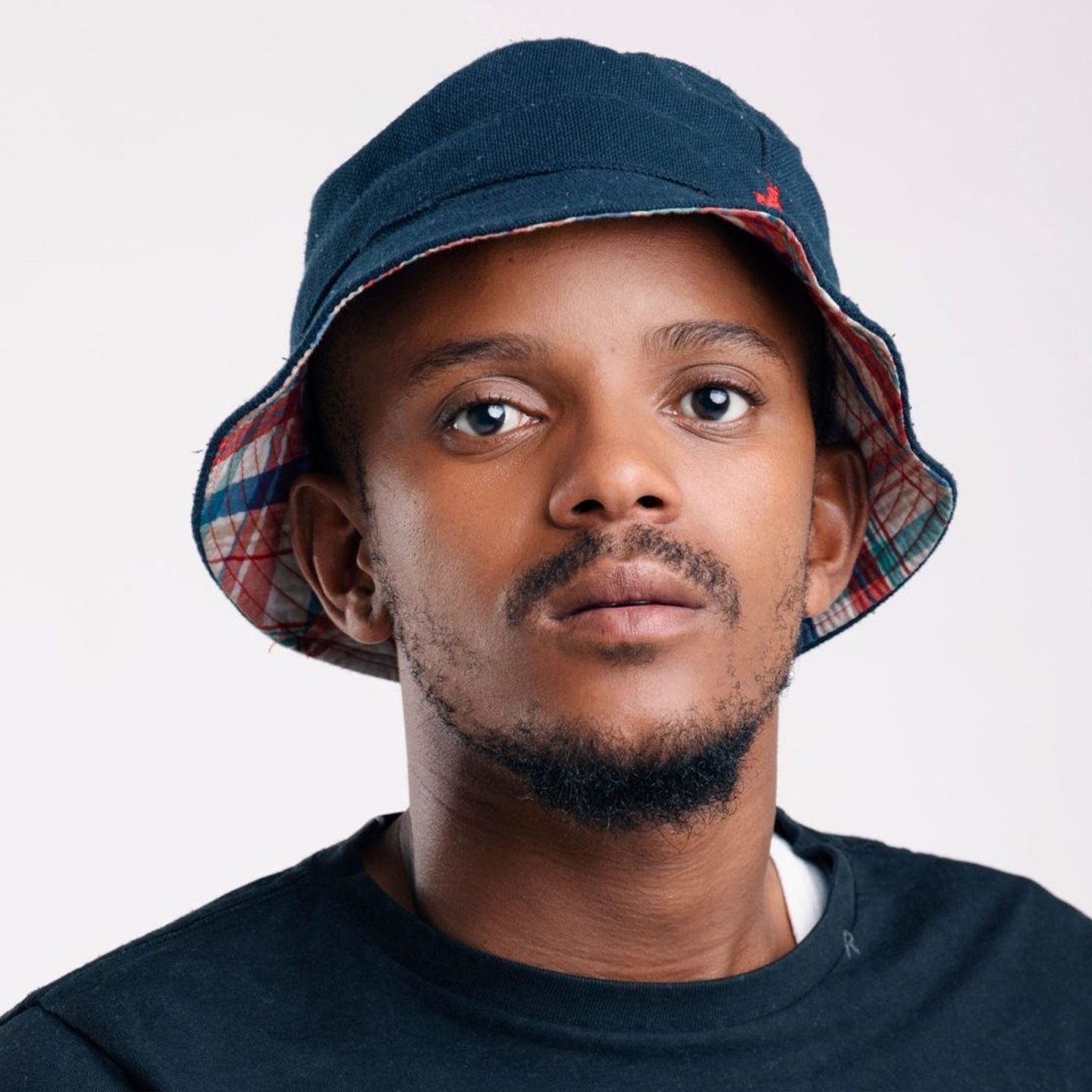
-
Kabza De Small
SPOTIFY · APPLE MUSIC
Referred to by some as the King of Amapiano, Kabza De Small’s shoulders bear the genre’s considerable weight with its popularity exploding globally in recent times. But the title is only fitting given how prolific and consistent of a producer he is. Kabza first vibrated eardrums in 2016 with his Avenue Sounds release, featuring signature Mzansi percussive drops and vocals, eventually leaning more into house’s deeper, jazzier sonics. Arguably the most formative period in the development of his sound happened in tandem with the genre, working alongside close collaborator DJ Maphorisa, with both artists releasing on a sometimes weekly basis. That work ethic saw the two produce four studio albums between 2019 and 2020, including Scorpion Kings, the signature flutes from which are heard on street corners across South Africa.
His most recent solo venture, I Am The King Of Amapiano: Sweet & Dust, is packed with features from local SA talent, including Shasha and Daliwonga and African “superstars” like Wizkid, Burna Boy and Cassper Nyovest, demonstrating well-earned respect as the reference for Yanos music today.Andrew Mensah
-
-
-
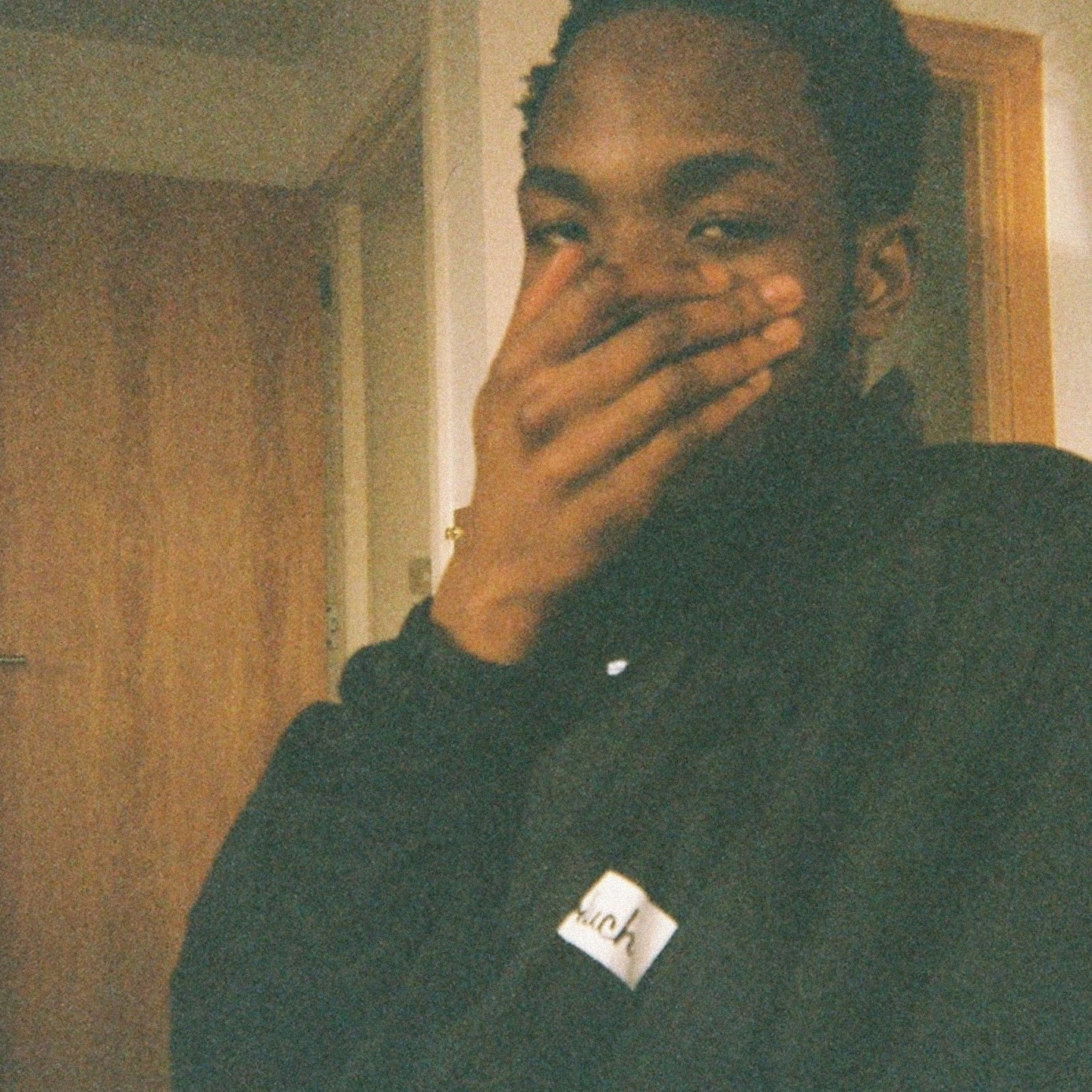
-
Chunky
BANDCAMP · SPOTIFY · APPLE MUSIC
Though best known as an MC, Chunky wears many hats. He started out on the mic at eclectic Manchester nights Hit & Run and Hoya:Hoya, as well as for heavy-duty dubstep crew True Tiger and as the frontman for the Riot Jazz brass band. He then became the voice of a pivotal era in UK underground music: as many dubstep artists transitioned towards house and techno, his low-key MC style suited their newfound sound. Swamp81 and Hessle Audio were among the labels on the cutting edge, and Chunky was the natural vibesman who made their parties tick. At peak-time, he might get the whole crowd to crouch and jump as Loefah unleashed a brand new Zed Bias & Paleman dub, which most of the crowd probably knew from their Rinse FM show the night before.
Chunky regularly represents his home city Manchester, whether playing local hip-hop and grime on his Manny Flavaz live stream or with the LEVELZ crew. He has progressed as a club DJ, for a while as part of MCs In The Mix, and also when playing funk vinyl as Norwood Soul Patrol. In 2012, he released his first pack of original grooves on Loefah’s label, and has kept developing his production into what you hear on 2020’s Novella.Richard Akingbehin
-
-
-
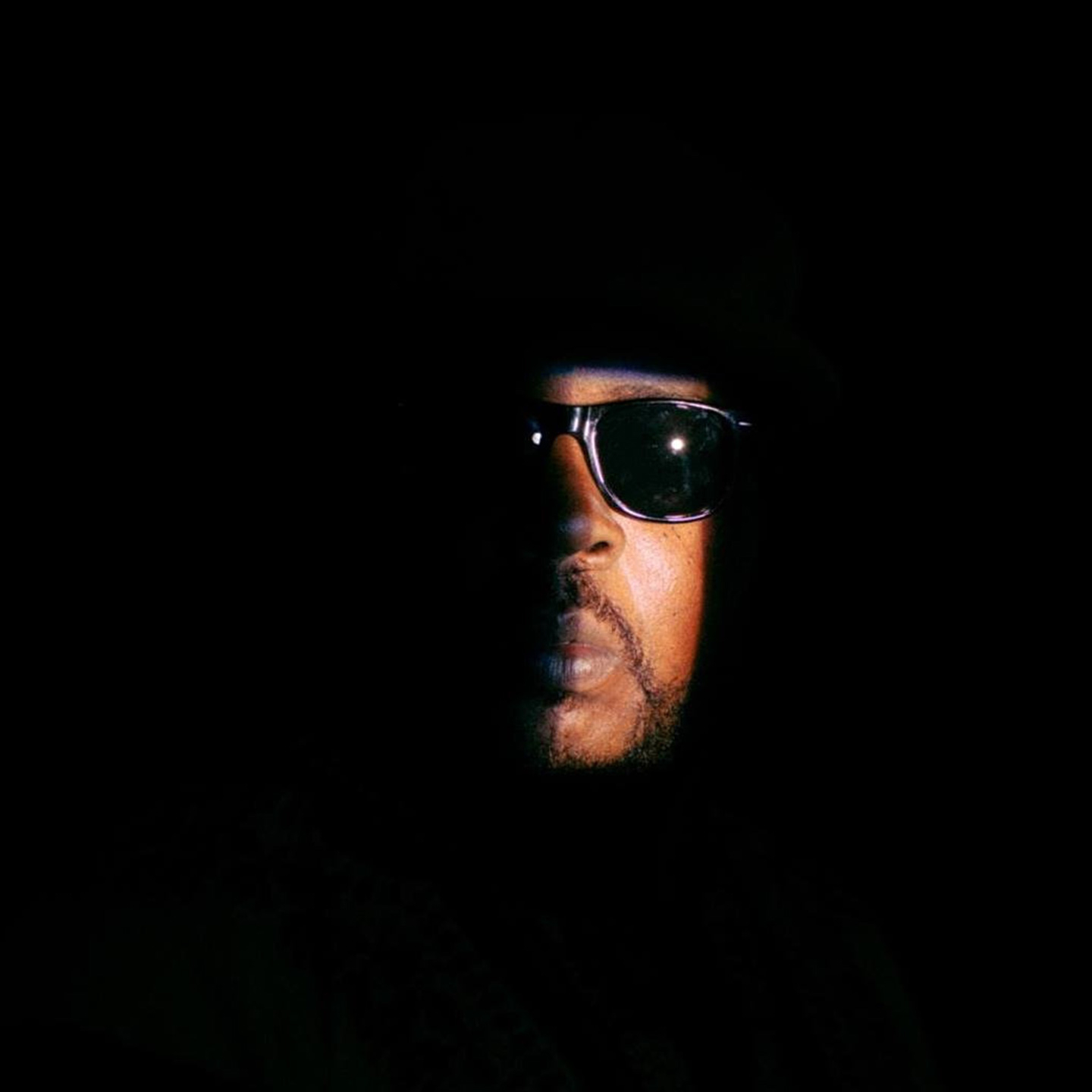
-
Kaidi Tatham
BANDCAMP · SPOTIFY · APPLE MUSIC
It is hard to exaggerate Kaidi Tatham’s contribution to West London broken beat. A multi-instrumentalist and producer, Tatham ushered in a genre that fuzed funk, jazz, hip-hop and soul with otherworldly rhythms just before the turn of the century. His productions are warm and lush spiritual meditations with mystifying time signatures and hypnotic riffs. He’s worked with Amy Winehouse, Ampfiddler, Slum Village, and most recently produced an EP with Andrew Ashong. A flautist and pianist, Tatham can lay keys over syncopated rhythms in the most unusual and disarming ways. What’s more, though distinct, his sound continues to evolve. From his early years in Bugz In The Attic up to present day collaborations with fellow broken beat pioneer Dego, Tatham continues to shape a genre that enchants as much as it entertains. He defines the West London broken beat generation, a sound so London, so affecting and so affirming.
Riri Hylton
-
-
-
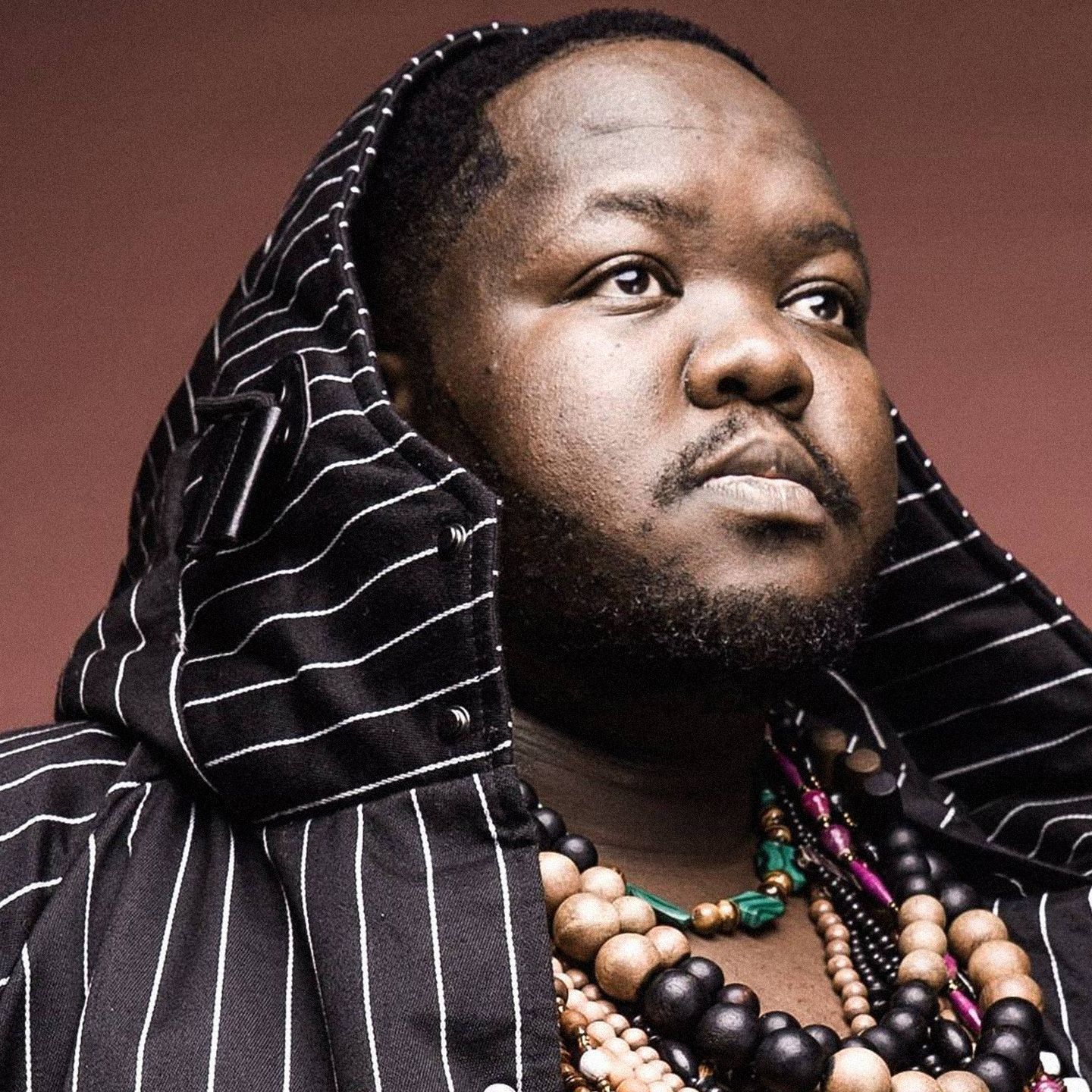
-
HEAVY K
SPOTIFY · APPLE MUSIC
South African producer, composer and DJ HEAVY-K, known countrywide as “The Drumboss,” has firmly positioned himself as one of the continent’s top entertainers. As a youngster on his way to borrow movies from a neighbour, HEAVY-K stumbled upon a friend’s recording session that would change the trajectory of his life for good. Inspired by what he witnessed, he became a self-taught producer, eventually taken under the wing of Oskido as part of his I Believe radio program in 2013, where he further sharpened his skills. In scintillating live shows, he’s embedded his flavor of house with nuanced drum-driven African sounds, commanding respect with every set and session.
Shiba Melissa Mazaza
-
-
-
-
-
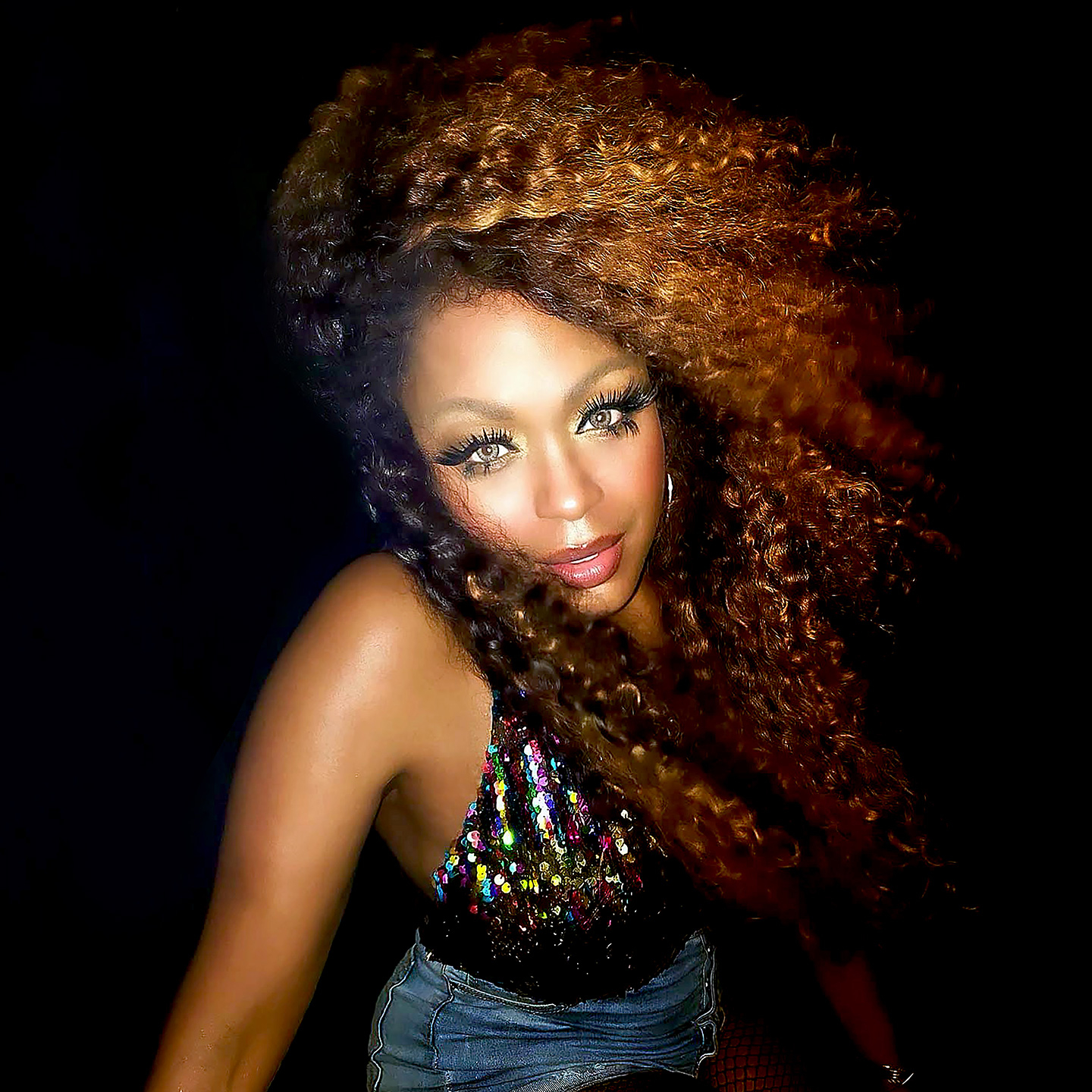
-
Ultra Naté
SPOTIFY · HOMEPAGE · APPLE MUSIC
Singer, songwriter and DJ, Ultra Naté was a club kid way before becoming a ’90s icon. After signing with Warner Bros in 1989, Naté released two soulful house albums, but it was with Strictly Rhythm and production titans Mood II Swing that she collapsed rock, gospel, and house into a thumping anthem for the ages. “Free,” with its roving electric guitar, soaring vocals, and affirming lyricism was a clarion call and international hit. Naté’s electrifying voice topped dance charts the world over. Her 1998 album Situation Critical soon followed, with dance tracks like “Found A Cure,” “Love You Can’t Deny” and “New Kind Of Medicine,” a smooth acid jazz cut. 2001’s Stranger Than Fiction saw an inspired collaboration with 4Hero on “Twisted,” a mesmerising production that remains as fresh as the first listen. Naté continues to sing, DJ, promote and produce, forever remembered for those iconic lyrics:
If you gave more than you took, life would be so good. / Come on and try, now’s the time cause you’re freeee / To do what you want to dooo.”Riri Hylton
-
-
-
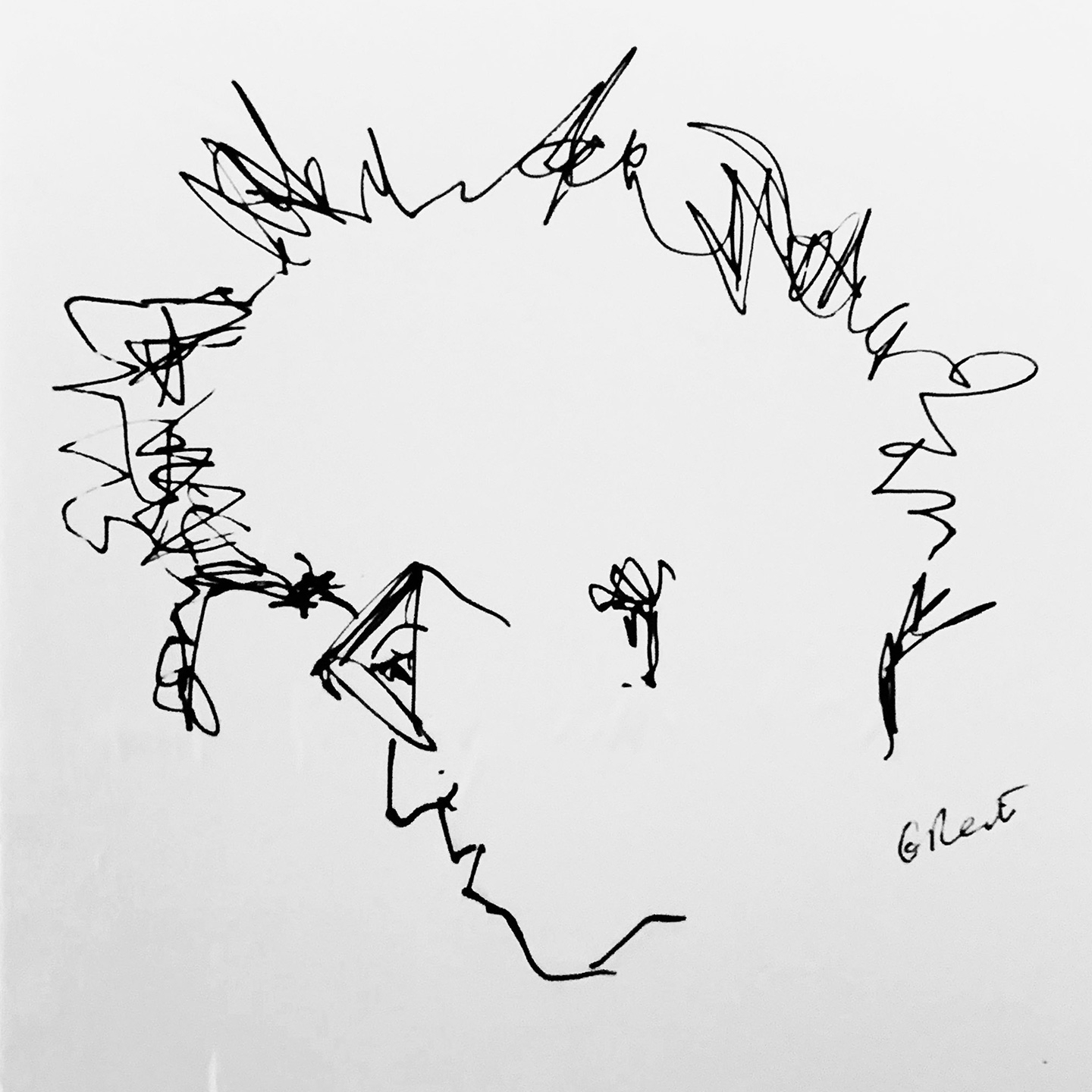
-
Ian Finkelstein
BANDCAMP · SPOTIFY · APPLE MUSIC
Pianist, composer and producer Ian Finkelstein has been a presence in the Detroit music landscape since the age of 14. Trained in jazz, he was a student of the late pianist Geri Allen, while also cutting his teeth on the Motor City jazz circuit with the likes of Marcus Belgrave, Robert Hurst, Karriem Riggins and Patrice Rushen. Having spent so much time in a city central to house and techno’s development, it’s no wonder Fink glanced across the field, curious about the other game in town. He took no time in getting involved with a few solo releases and modestly featuring on records for Scott Grooves, Waajeed, Omar-S and Shigeto. However, it’s in his most recent exploits where one can hear fragments of Theo Parrish, Norm Talley and Rick Wilhite flowing from his fingertips.
Duality/Detroit Vol 1, recordings of his weekly residency with guest artists and collaborating drummers, breathes electronic Detroit. The Solo Recordings project demonstrates a delicate and virtuosic musicality recalling Keith Jarrett at The Köln Concert, while his most recent FULL EP is pure funked jazz house released on his Freak Press imprint.Andrew Mensah
-
-
-
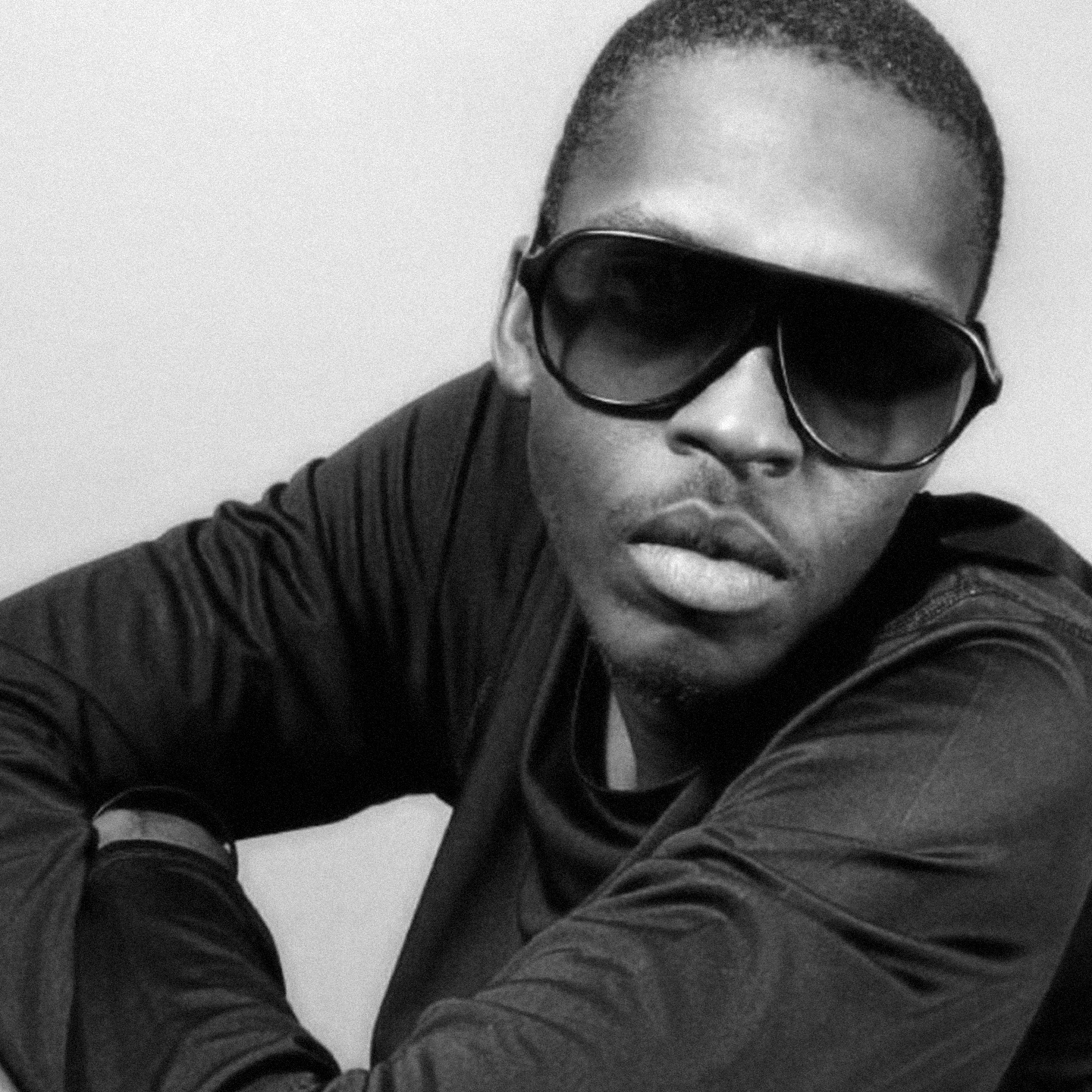
-
Mujava
SPOTIFY · APPLE MUSIC
South African DJ-producer Mujava changed the game in 2006 with Sgubhu Sa Pitori, an album distributed on CDs via Pretoria’s public transport system. His next release, Township Funk, came two years later, showcasing an as-of-yet untapped combination of Bacardi House and Kwaito. Released on Warp Records, this unprecedented work gained massive attention and was picked up by all manner of international tastemakers, including BBC Radio 1’s Gilles Peterson, BBC Asian Network’s DJ Kayper and Sonny Ji, as well as BBC Radio 1Xtra’s DJ Edu and MistaJam. Going on to snag 34th place on NME’s Cool List that same year, it seemed that Mujava was well on his way. Unfortunately, in the film Future Sound oOf Mzansi, produced by Spoek Mathambo and distributed by Vice, Mujava chronicles an arrest for marijuana possession which saw him detained in a psychiatric hospital and forcibly given drugs, eventually affecting his ability to make music. His last known collab came in 2010 alongside South African DJ-producer Qness, with whom he remixed M.I.A.’s single “XXX0.”
Shiba Melissa Mazaza
-
-
-
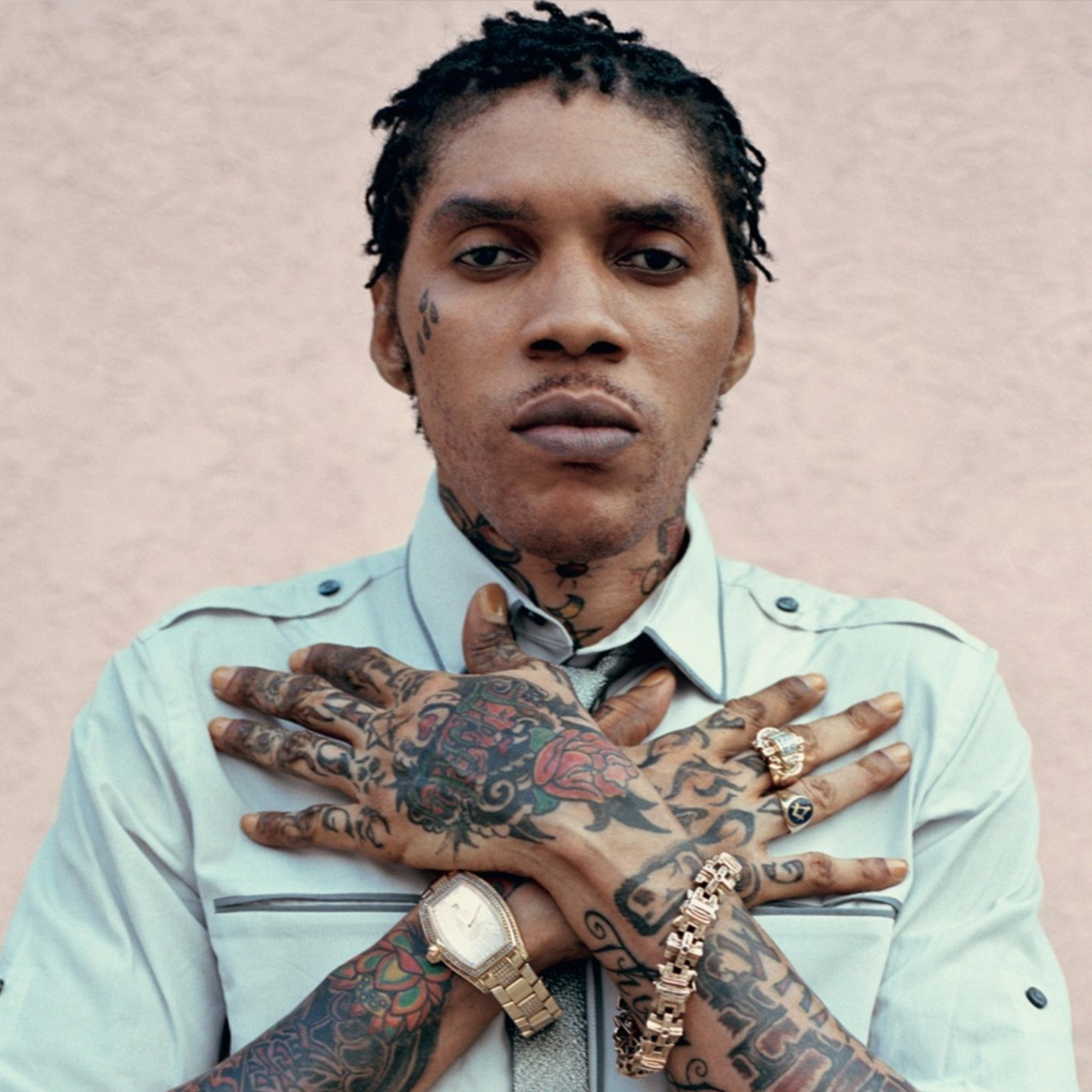
-
Vybz Kartel aka Worl’ Boss aka Di Teacha
BANDCAMP · SPOTIFY · APPLE MUSIC
Adidja Palmer, AKA Vybz Kartel, is the reigning king of dancehall. Also known as Worl’ Boss and Di Teacha, Kartel is both a storyteller and folklore hero. His high-energy, lyric-packed flow and raunchy content fit the dancehall style to a T, plus he has an ear for drama, as shown in 2011’s “You And Him Deh.” It took a full decade before Kartel started making waves, but his reach was international by the early 00s. 2003’s Up 2 Di Time made an impression in the UK, as did singles “Yuh Love” and “Romping Shop” in 2009. “Clarks” caused an uproar on the artist’s home island in 2010 when shops sold-out of the shoe brand and prices soared following the song’s release. Palmer, a controversial figure, was arrested in 2011 and sentenced to life in prison following a murder conviction in 2014. To everyone’s surprise, Kartel’s output only increased: single releases since his incarceration run into the hundreds and now no self-respecting bashment event can run without playing at least one Kartel song. He is indeed The King Of The Dancehall.
Riri Hylton
-
-
-
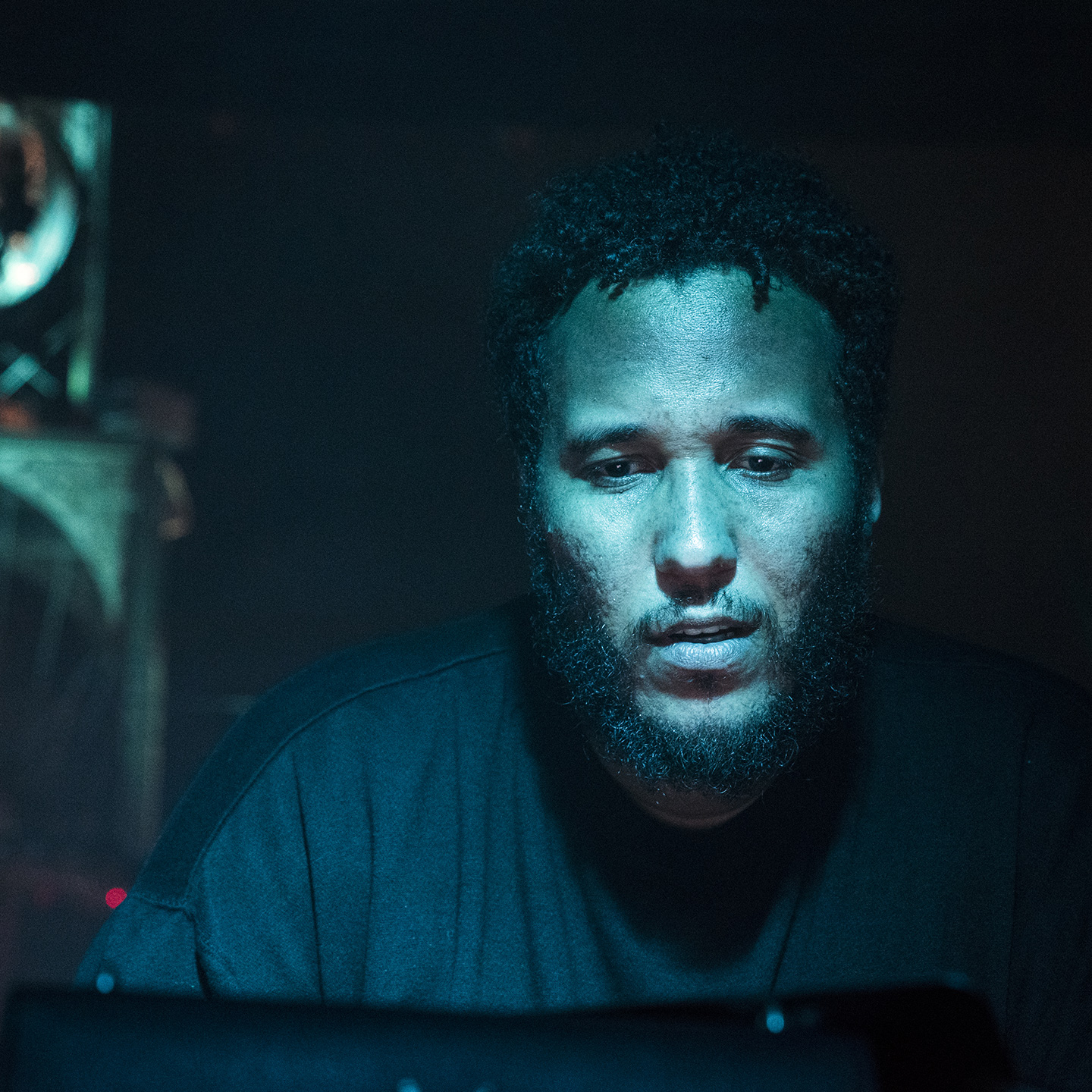
-
Benny Rodrigues
BANDCAMP · SPOTIFY · APPLE MUSIC
When RA’s Holly Dicker featured Benny Rodrigues, she billed him as Holland’s hardest working DJ, following him on tour for a weekend of seven festival sets. Not only is he the hardest working DJ—Rodrigues made over 300 tracks in quarantine last year for a self-released CD, as well as an album for Jeff Mills’ Axis label—he’s also one of the finest. Rodrigues keeps it real and old school, from the vintage analogue hardware and synthesizers he uses in the studio, to his independent attitude and encyclopaedic knowledge of ’90s techno. A record store employee since 16 and a club DJ by 18, Rodrigues lives and breathes dance music. He has aliases like ROD and Rod Malmok among others, but there isn’t too much separating them; they just allow him to do more projects at once. His recorded music, which has found a home on labels from Klockworks to The Corner, Running Back and Afterlife, distils his infectious energy and unwavering dance floor focus into powerful, trippy and jacking beats.
Richard Akingbehin
-
-
-
-

-
MF DOOM
BANDCAMP · SPOTIFY · APPLE MUSIC
The world appeared to halt on New Year’s Eve. Two months after Daniel Dumile’s passing on October 31st, his wife, Jasmine Dumile, announced his death through the rapper’s Instagram account. “Begin all things by giving thanks to THE ALL!,” opens the post, which reads like a heartfelt letter to her late husband. Born in London and raised in Long Island, New York, Dumile, who most famously played the character of MF DOOM, was one of hip-hop’s most innovative geniuses. He can be credited for birthing a new generation of oddball, underground hip-hop with an old-school ’90s touch—think Earl Sweatshirt, Joey Bada$$, Danny Brown. There was Dumile, the elusive author, and then there was DOOM, the hilarious, dastardly villain. Throughout his interviews (which are few and far between) Dumile emphasized that the two identities aren’t meant to be conflated. In 1999, the character was first introduced with the crinkling, lo-fi sounding Operation: Doomsday, which serves up intricate rhymes and smooth, familiar R&B samples. Five years later, DOOM became MADVILLAIN with the by-then imperial hip-hop producer Madlib, on their hazy, critically-acclaimed joint album, Madvillainy. The entirety of the record was produced in a “big house” and the union was effortless. DOOM brought sharp, rambling wordplay, and Madlib, rich, soulful instrumentals. On par in brilliance, MM…Food! was released that same year, chock-full of sexual innuendos, food puns and Cartoon Network-ready interludes. The world may not see more MF DOOM albums, but thankfully, his influence will outlive him.
Kiana Mickles
-
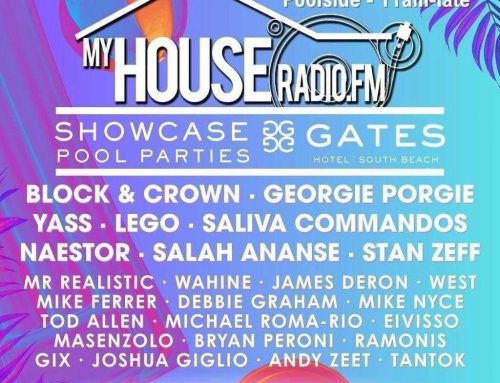




Leave A Comment
You must be logged in to post a comment.